This review was provided for free, but Trek Coquitlam supplied a temporary demo bike for me to test. My goal is to be transparent and unbiased with you, this video and writeup are not meant to be an endorsement of Trek or Electra products. I welcome your corrections, additions, and feedback in the comments below, and the Electra electric bike forums.
Observations:
- Electra is part of Trek, which is one of the “Big Three” North American bicycle manufacturers (including Specialized and Giant). Trek launched in 1975, making hand-brazed steel frames and then expanded to 90 different countries. In my opinion, they are one of the very best ebike makers with high quality designs, above average support, and I love the style and comfort that the Electra sub-brand is know for.
- Having covered the original Townie Go! 7D in early 2020, I was very excited to see the redesign for 2022! Instead of using a rear rack for the battery, they now integrated it into the downtube. This brings weight forward and down, so the bike is more balanced. If you choose to add a rear rack, the weight capacity won’t be partially taken up by a battery and your gear will be able to sit lower.
Pros:
- These electric bikes look amazing! The battery is completely hidden in the downtube and the planetary geared hub motor is compact and painted black to match the spokes and rims… and is basically hidden behind the 180mm disc brake rotor and 7-speed freewheel gear cluster. The result is an ebike that could easily be mistaken for a traditional bicycle. I found that the bike is also very quiet, even when using the highest level of assist.
- Having ridden the original Townie Go! 7D models with the rear rack battery, I found this new design to be more stable. I did some no-hand riding and did not experience speed wobble as I had before. The wider 2.35″ balloon tires they used helps with stability, traction, and comfort.
- Even though these Townie Go! 7D models do not come in multiple sizes per-se, the step-thru could be considered small/medium and the high-step could be considered medium/large due to the frame geometry and different sized wheels. The step-thru has 26″ wheels while the high-step has 27.5″ which raises the frame and makes it longer. I’ve included measurements for each frame in the specs section above, but it’s great that Trek has so many dealers that carry Electra, so you can go try for yourself. Also, the high-rise handlebar and angled seat tube provide above-average fit adjustability.
- Electra is known for their fun designs and colors. It’s great that the step-thru model comes in five different colors and the high-step comes in two. As a guy, I felt comfortable with the Lunar Grey color scheme on the step-thru, and appreciate how easy it was to mount and stand over when stopped. The Citron green could be another gender-neutral color choice for the step-thru.
- This is a little thing, but all of the hardware is color-matched as black or silver. This includes hubs, spokes, rims, seat post, stem, handlebar, chainring guard, kickstand, and cranks. Notice the difference between the Lunar Grey and Citron to see what I mean.
- Even though both wheels have 36 spokes, the rear wheel is spoked with thicker 13 gauge to improve wheel strength. This is perfect, because there are threaded eyelets to add a rear rack that could be used for panniers, a trunk bag, or child seat, and the extra strength would be important in those cases. Note that the total weight capacity of the bike is 300lbs but when you subtract the 45lbs of the bike itself, you end up with closer to 250lbs which is pretty typical.
- Electra is famous for developing “Flat Foot” frame designs, which means that the spindle where the crank arms are connected is a bit forward from the seat tube. This helps to deliver full leg extension while pedaling without raising the seat so high from the ground. Flat foot means you can usually sit on the saddle and put your feet down on the ground, and then pedal with full leg extension because the pedals are more forward.
- While the battery is not easily removable, and the charging port is a bit low on the frame, I appreciate how easy it was to interact with, that it wasn’t directly inline with the crank arms, that it has a durable plastic cover, and that the charger is so light and compact. Also, you can remove the battery for repair or replacement with the help of a shop!
- The steel fork and chain cover are painted to match the main frame, so the overall aesthetic is excellent. Electra has a bunch of accessories that have been designed to match their bikes including reflectors, bells, fenders, cup holders, helmets, lights, locks, bags, racks, and baskets. This is nice because the shop could help to install them and the fit tends to be better than a third party accessory.
- Even though the display panel is very simple and compact, I found it to be less intimidating and distracting than some LCD computer displays. There are five green dots for charge level, and three red dots for assist level… and that’s it. Apparently there could be a smartphone app at some point, and Trek / Electra dealers can connect to the bike to perform software or firmware updates at the shop.
- In addition to being the lightest electric bike from Electra, it’s also the most affordable at $1,749. This is very impressive to me considering it is sold at a dealer, comes with a two year comprehensive warranty, and is so well executed. It has matching grips and saddle, bottle cage bosses, and a beautiful purpose built frame with internal cable routing after all!
- The brakes were upgraded to use 180mm rotors vs. 160mm on many other affordable cruisers. This means you get an increased mechanical advantage for stopping, and they will dissipate heat faster.
- Lots of attention to detail, including a clear sticker slap guard on the right chain stay. This will keep the paint looking beautiful and might also reduce noise if the chain bounces into the bike. Note that the chain will bonk the inside of the steel chain cover if you go off-road or off curbs.
- They used an intuitive Shimano RevoShift half-grip twist shifter vs. triggers. I find that some of my more casual riding family and friends are more comfortable with the twist shifter, and the optical gear readout is pretty handy. Note that the derailleur is super basic (Shimano Tourney), but the freewheel is above average with 14 to 34 tooth so you can start and climb more easily than the common 14 to 28 tooth seen on a lot of competitors.
- Impressively low minimum saddle height on the step-thru version of this bike. The double-tube design keeps the frame stiff, but they still managed to keep it low which makes the bike easier to mount and stand over.
- I’m used to seeing affordable electric bikes specced with cadence sensors, but the Electra Townie Go! 7D comes with a torque and cadence sensing bottom bracket that feels more natural and dynamic. The harder you pedal, the more power you get. It doesn’t feel jerky or surprising, but it does require a bit more pedal effort than a cadence sensor, which will help extend your range
- Great job with the little details, note the position of the kickstand towards the back of the bike (so it won’t cause pedal lock) and the plastic platform pedals with rubber tread (that won’t scrape your shins if you slip off). Consider some larger grippier pedals like these if you have big feet or want to ride more aggressively or in wet/snowy conditions.
- If you hold the minus button for a few seconds, then the plus button, the bike will offer walk mode which is useful if you get a flat tire or need to cut across a park or other crowded area.
Cons:
- Having covered the prior generation of this electric bike in early 2020, I noticed a few changes including lower battery capacity (250wh vs. 309.6wh), no USB charging port on the display panel, no rear rack included, and no chain guide (just a single-side chain guard). Many things have been improved, but these are the trade-offs I see that could justify someone to go for a deal on the last generation.
- As much as I love the internally mounted battery design for keeping weight low and center, the pack is not easily removable. This means you have to park the entire bike near a plug to refill. This could be challenging for people who ride to work and have to park outside, and it also means the battery could be exposed to more extreme temperatures.
- In general, the hub motor on this electric cruiser bicycle is weaker than most others in North America. It’s maxed out for European markets, offering 250 watts and 40 newton meters of torque, and it felt very satisfying to me, but a lot of the competition is at 350, 500, and even 750 watts. One downside to higher powered motors is that they use the battery energy up faster, which requires a larger battery, which makes the bike heavier and more expensive.
- I noticed that the brake levers did not have motor inhibitors to immediately cut power whenever the rider is stopping. Considering the weaker motor and the torque and cadence sensing pedal assist sensors, I feel that it’s still safe and was a good decision to reduce wire clutter and complexity, but there may be moments when the brakes are fighting the motor at the very beginning of a stop or if you accidentally keep pedaling while braking.
- The brakes are mechanical, which means you can adjust them easier with basic tools, but they tend to require more hand effort than hydraulic. This is especially true for the rear brake, since the cable has to go farther and the angle of the wire entering the cable housing seems vulnerable to letting water and dust drip and settle in the housing. I show this in the video review above, but it’s actually not that uncommon and shouldn’t be a major factor… the right brake for the rear wheel might just feel harder or sticker over time as the cable sets in.
- Electra / Trek / Bontrager sell a bunch of awesome and compatible racks, bags, bells, lights, and locks, but they all cost extra and this particular model doesn’t come with anything. There’s a mount for a frame lock (or ring lock as they call it on the site), there are places to mount fenders and racks, and I love the bottle cage mounting point on the downtube… but if you add lights aftermarket, they could be easily stolen and will require independent charging vs. running off of the main battery like other Electra models.
- I like the saddle, and the seat post dimensions are okay, but the top of the seat post is tapered and the saddle clamp is my least favorite design. It’s difficult to adjust because it uses nuts and a bolt vs. a hex bolt. It’s difficult to explain, but the result is that it can be difficult to change the saddle angle without help from a second person, and if it’s not tight the saddle is more likely to change angles. I wish they had used a more modern mountain bike type of saddle clamp.
- There’s no suspension on this electric bike, which is not uncommon for cruiser style ebikes with larger “balloon” tires. The steel fork dampens vibration, the swept back handlebars and larger saddle with elastomers creates some cushion… but it’s not the same as a suspension fork and seat post suspension. Thankfully, you can easily find a cheap suspension seatpost that is 27.2mm in diameter, and the saddle clamp will be much better than the stock one that I was just complaining about. Ultimately, it’s something I would look into, and I’d probably get an SR Suntour NXC suspension post for $100 because it’s a good bang for the buck and works well.
- The motor power cable exits the rear axle on the right side of the bike at a harsh 90-degree angle, and the wire adds clutter because it’s near the derailleur shifter cable. To me, this is a bit vulnerable and I appreciate the newer designs that have the motor power cable on the left side of the frame tucked between the disc brake and chainstay that other companies have moved to. Perhaps we will see Electra follow this design at some point, but in the meantime a derailleur guard could help to protect the cable from getting snagged or cut, which would ruin the motor and is very difficult to fix vs. just replacing it.
- The pedals that come with this model are fairly basic plastic with some rubber tread. They are probably fine for most riders who are just cruising through neighborhoods, but they aren’t super grippy. I think the last generation of this ebike had similar but fancier name-brand VP pedals, so it seems like another cost reduction choice here.
- The steel fork and chain cover are paint matched and look great, steel is sturdy and offers some vibration dampening (which improves ride quality) but can also rust when scratched… consider using nail polish or clear touch-up paint if you get scratches or chips over time. Even on my short ride test, I repeatedly heard the chain bounce into the steel chain cover when riding off of curbs or through grass.
- The display panel button pad is discrete and less likely to be damaged because it’s so compact, but it doesn’t show your current speed, a precise battery readout, estimated range, or any of the other neat stats that a full LCD might. I was told that the bike might have a smartphone app in the future, but I didn’t see an obvious way to pair it, and even the walk mode setting was a little confusing to activate (hold the – key for a few seconds until the red lights cycle repeatedly, then hold the + button to make the bike move forward slowly).
- This ebike does not come with puncture resistant tires, and they aren’t reflective either. They appear to be made by CST vs. having Electra branding in the prior generation. They feel good and look alright, but it’s not super fun to have to change flats on heavy electric bikes, so keep the tire pressure between the recommended PSI (which appears to be 22 to 60 PSI) to avoid pinch flats.
- This is a minor consideration, but I noticed a lot of cruiser style electric bikes with hub motors also have a throttle. This allows for easier starts and balancing, or simply not pedaling, which some people appreciate. All Trek/ELectra ebikes are Class 1 and do not have throttles, which means they can be ridden in more places legally and tend to get better range because you have to pedal along.

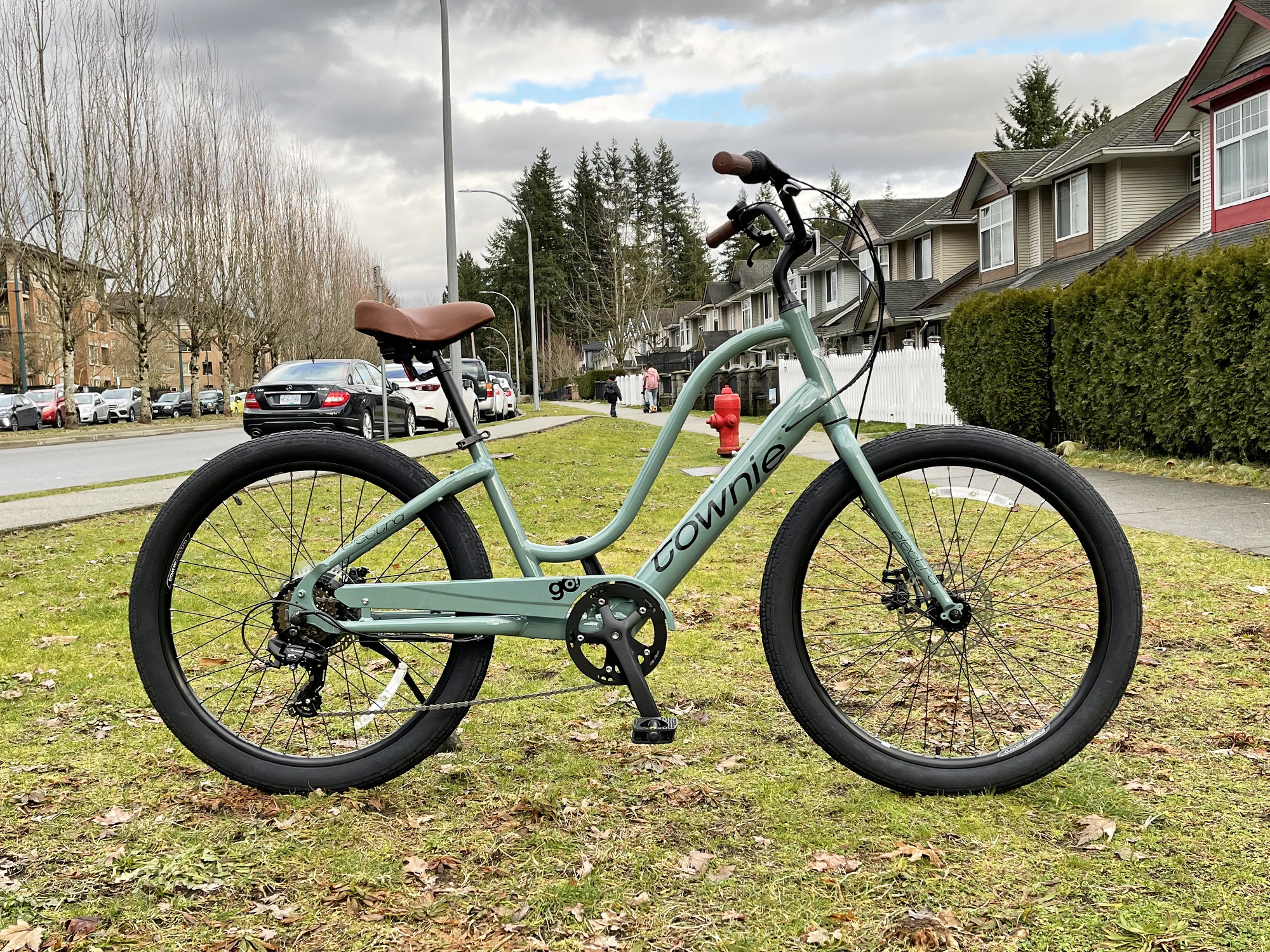
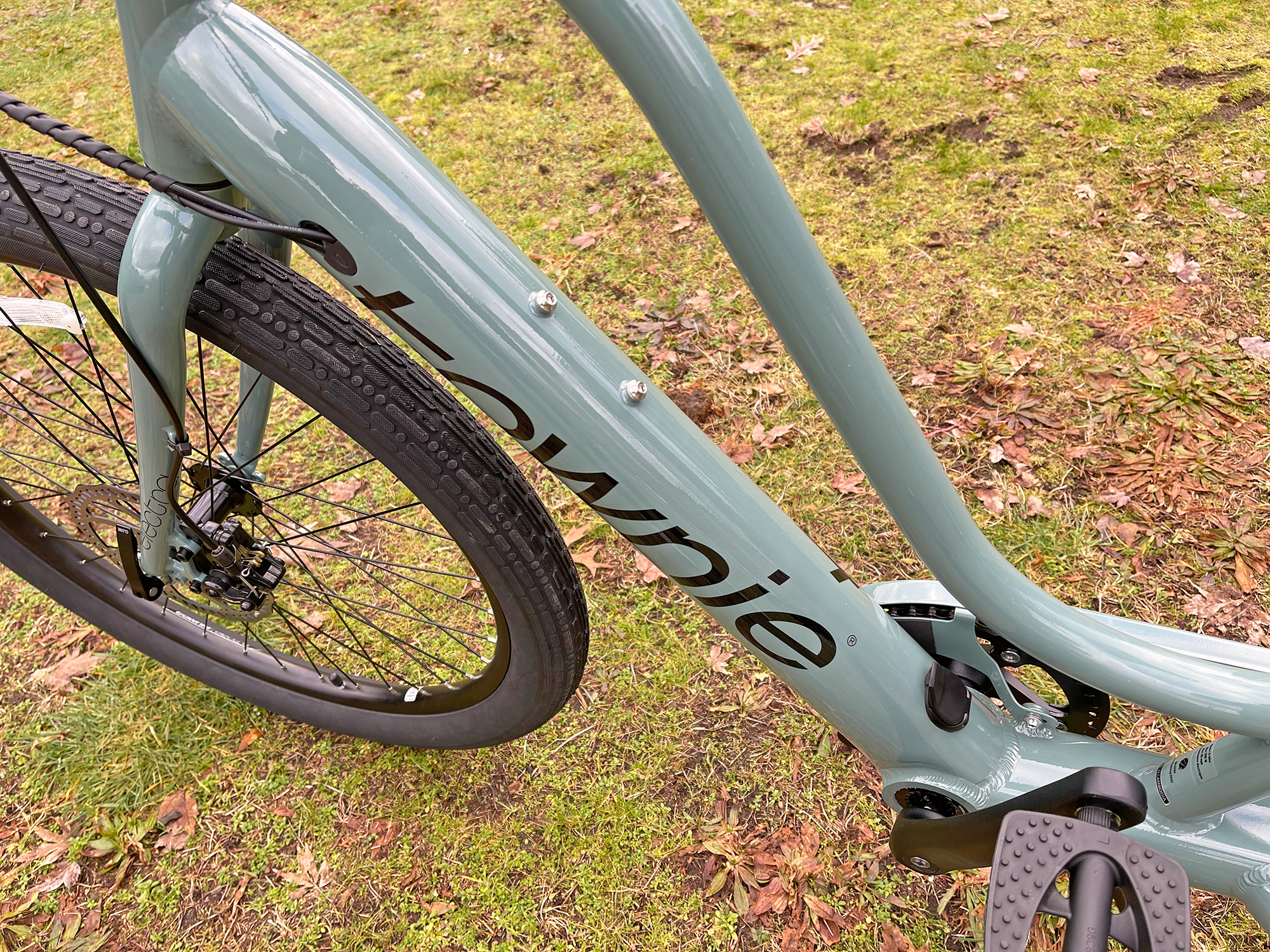
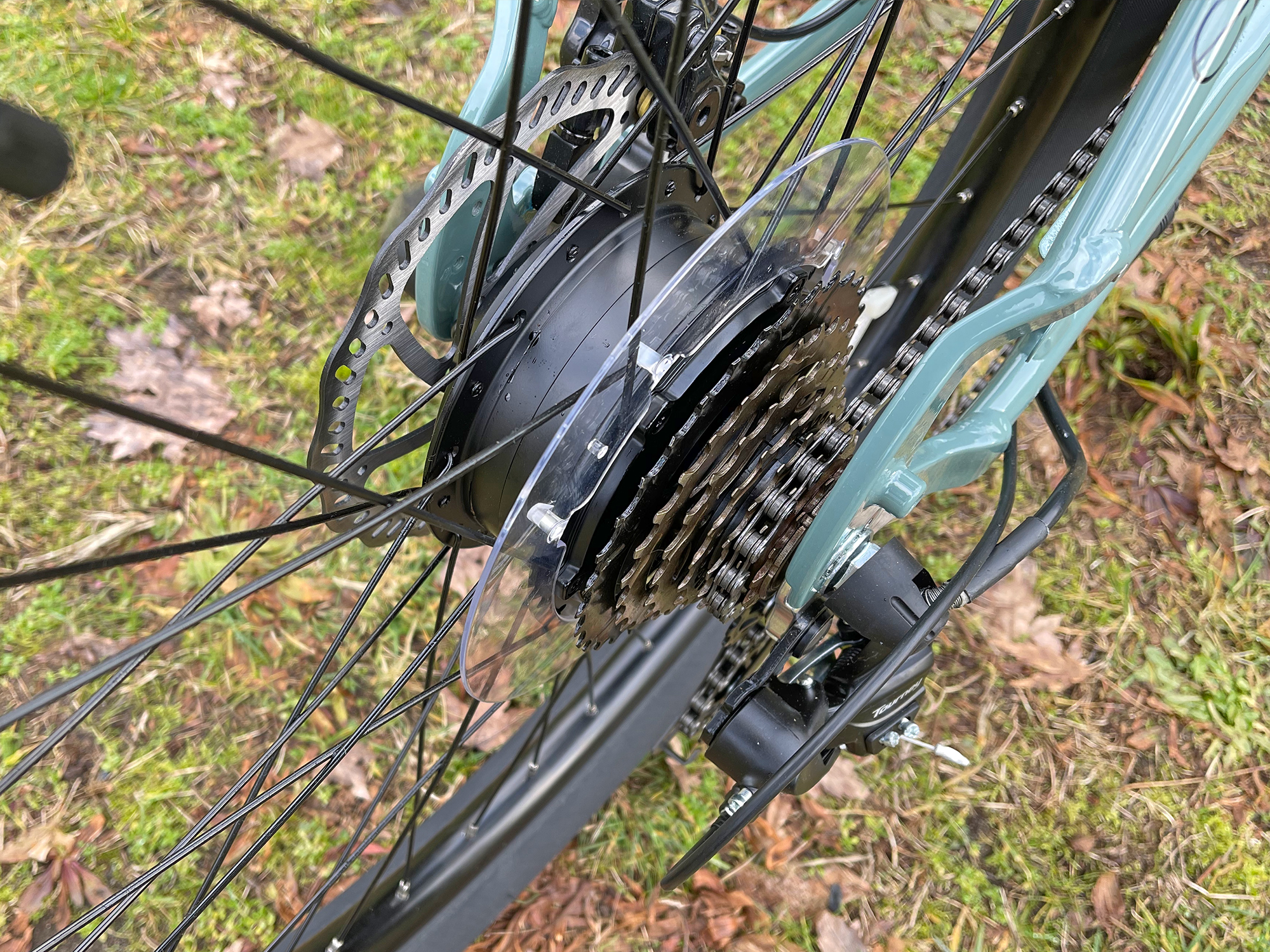

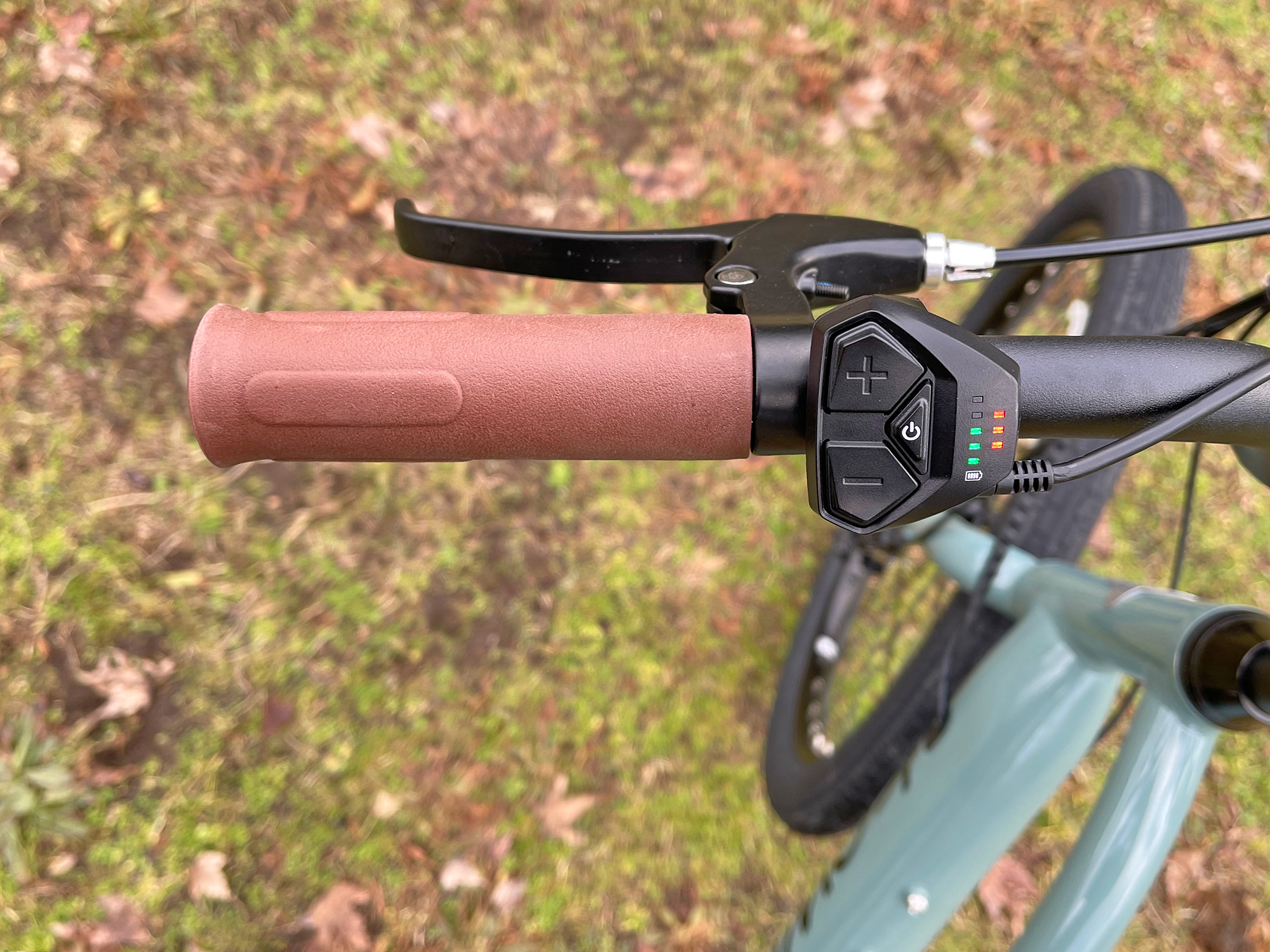
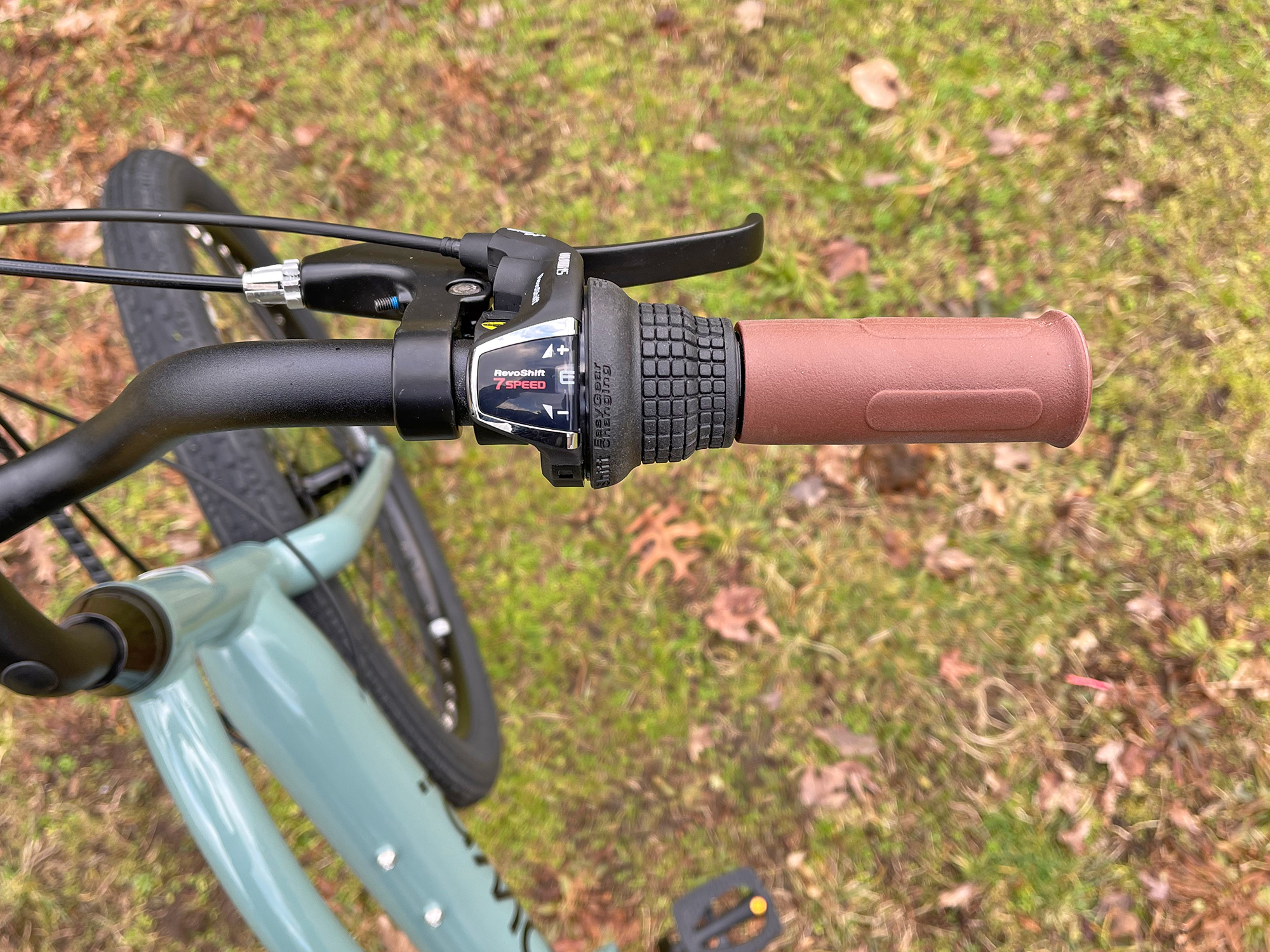
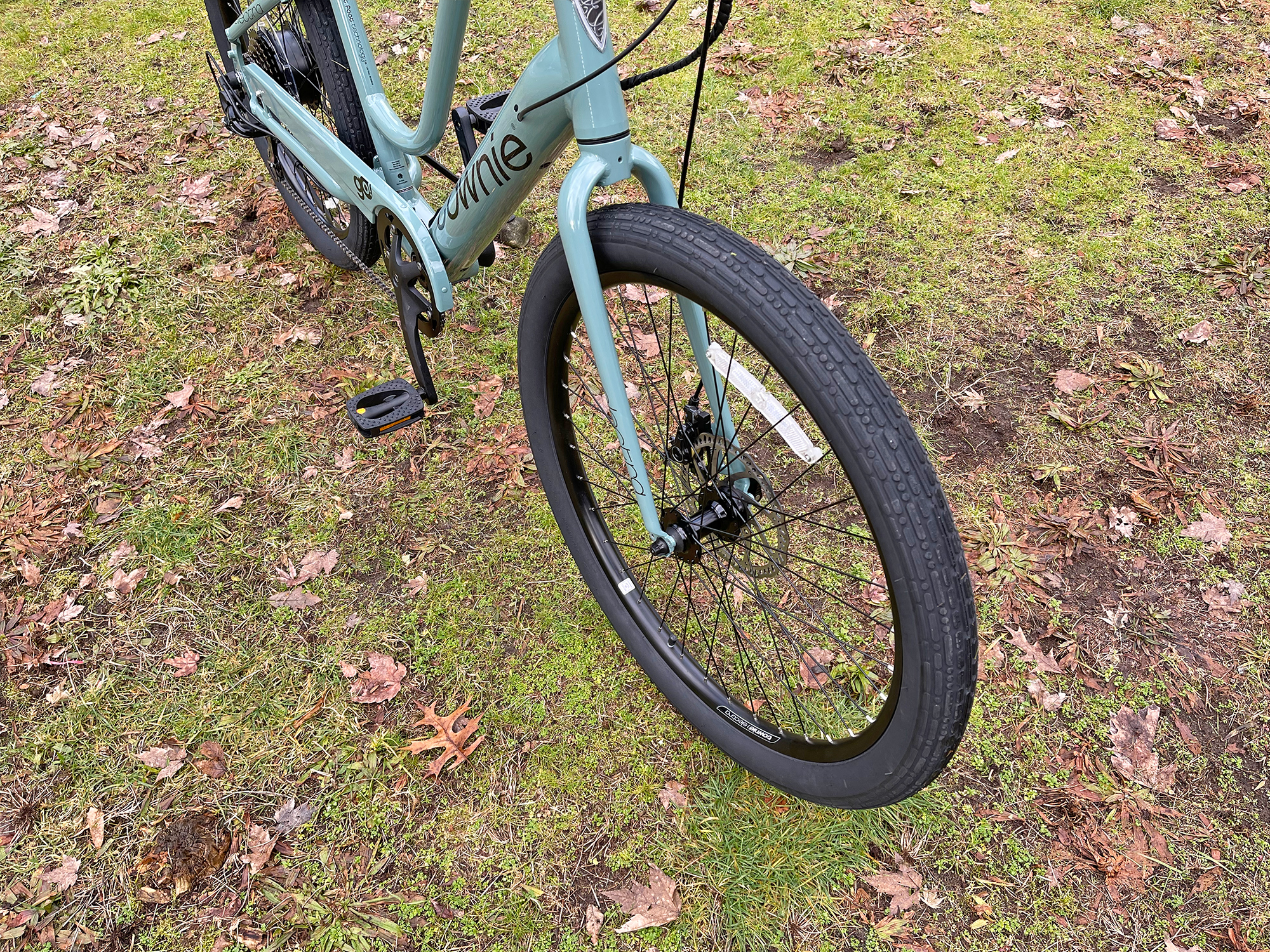
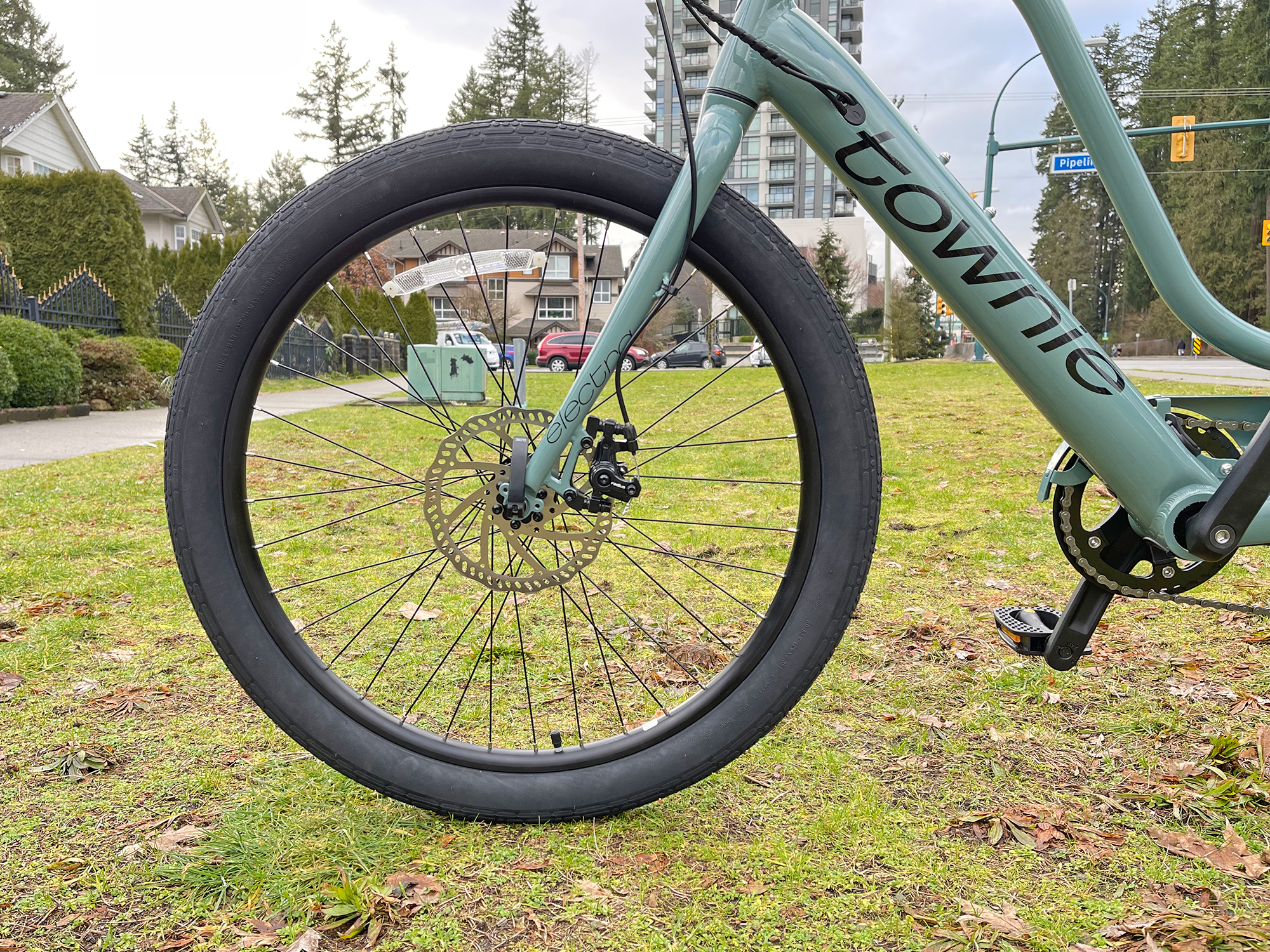
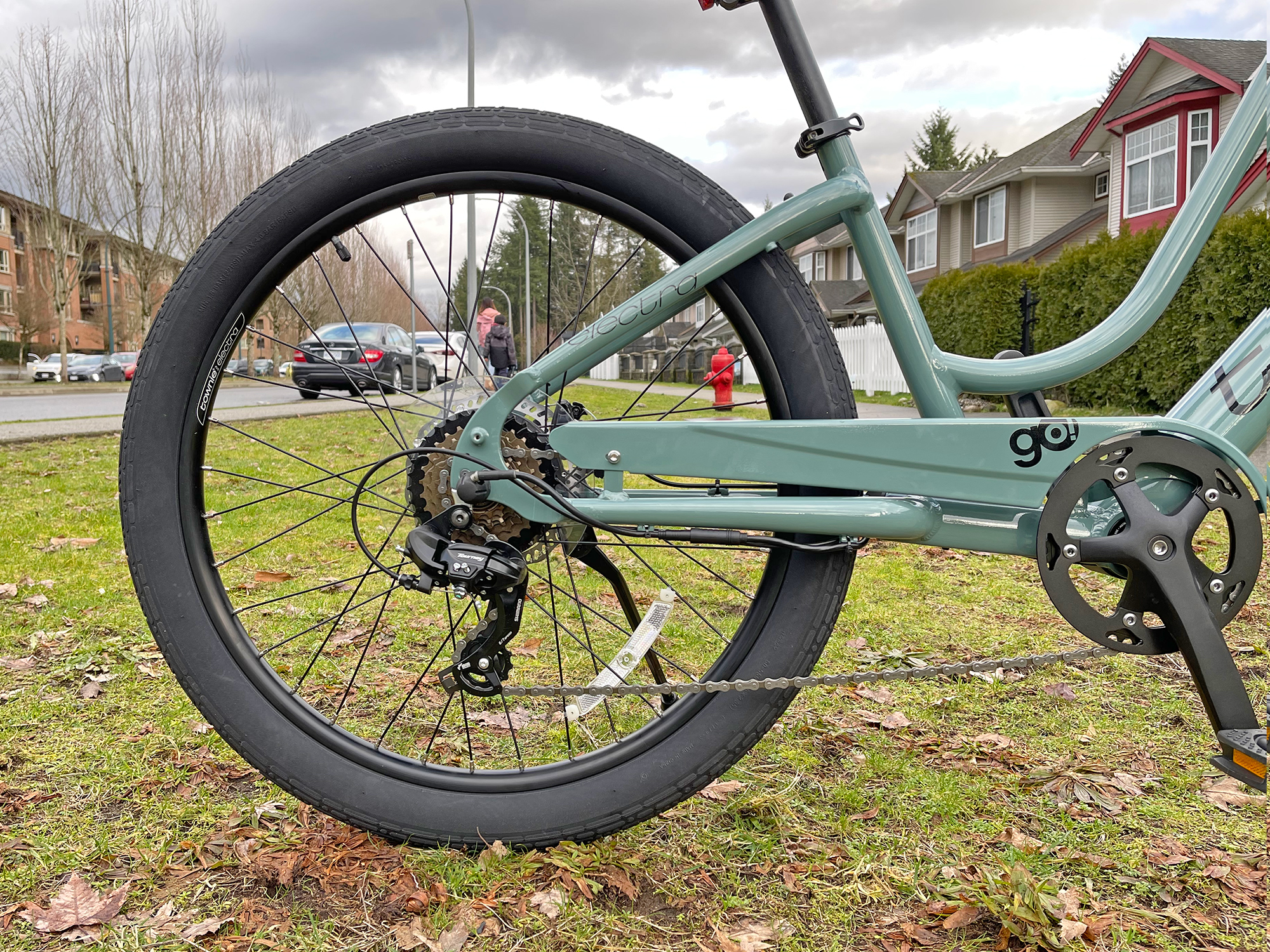
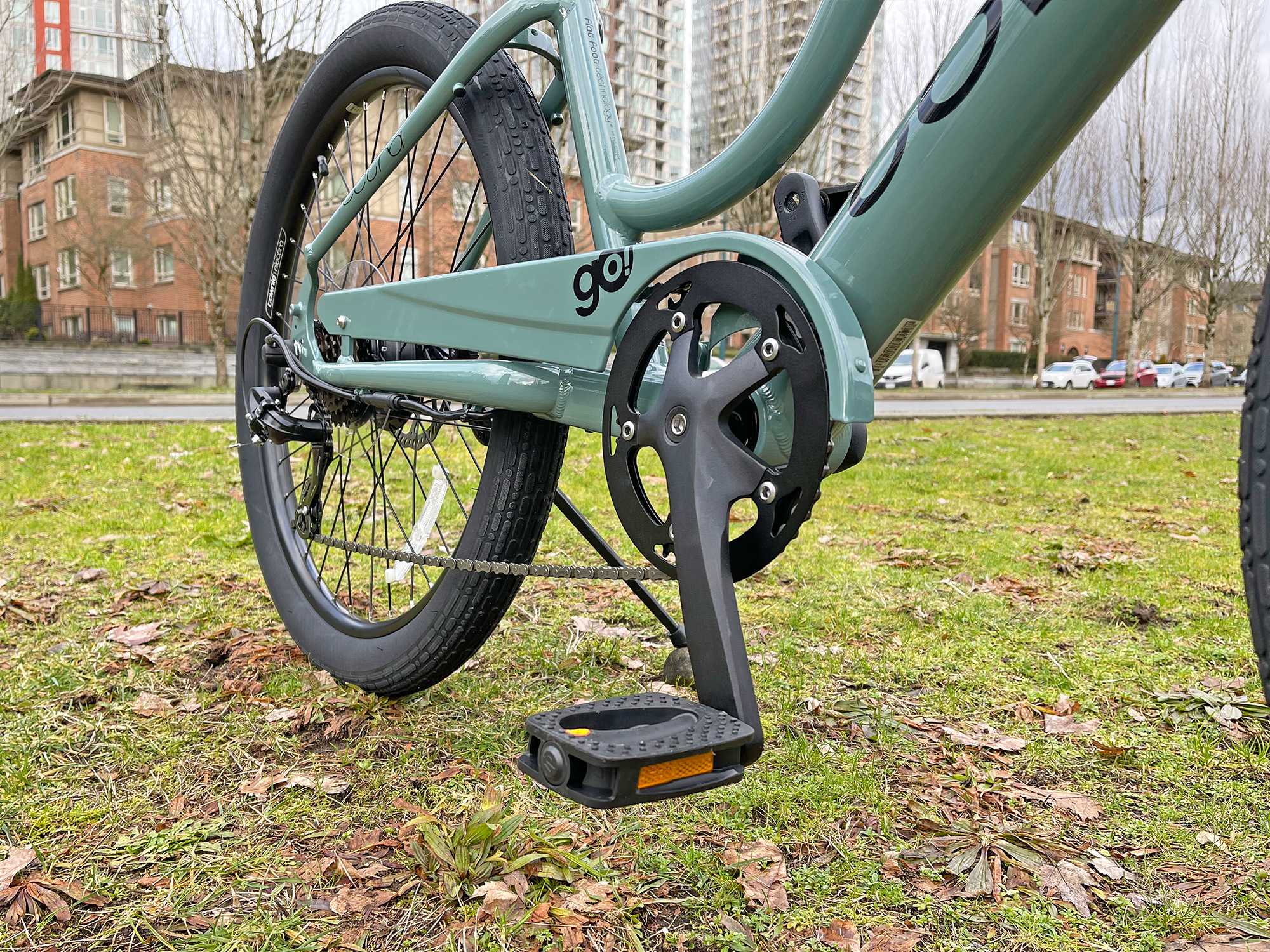
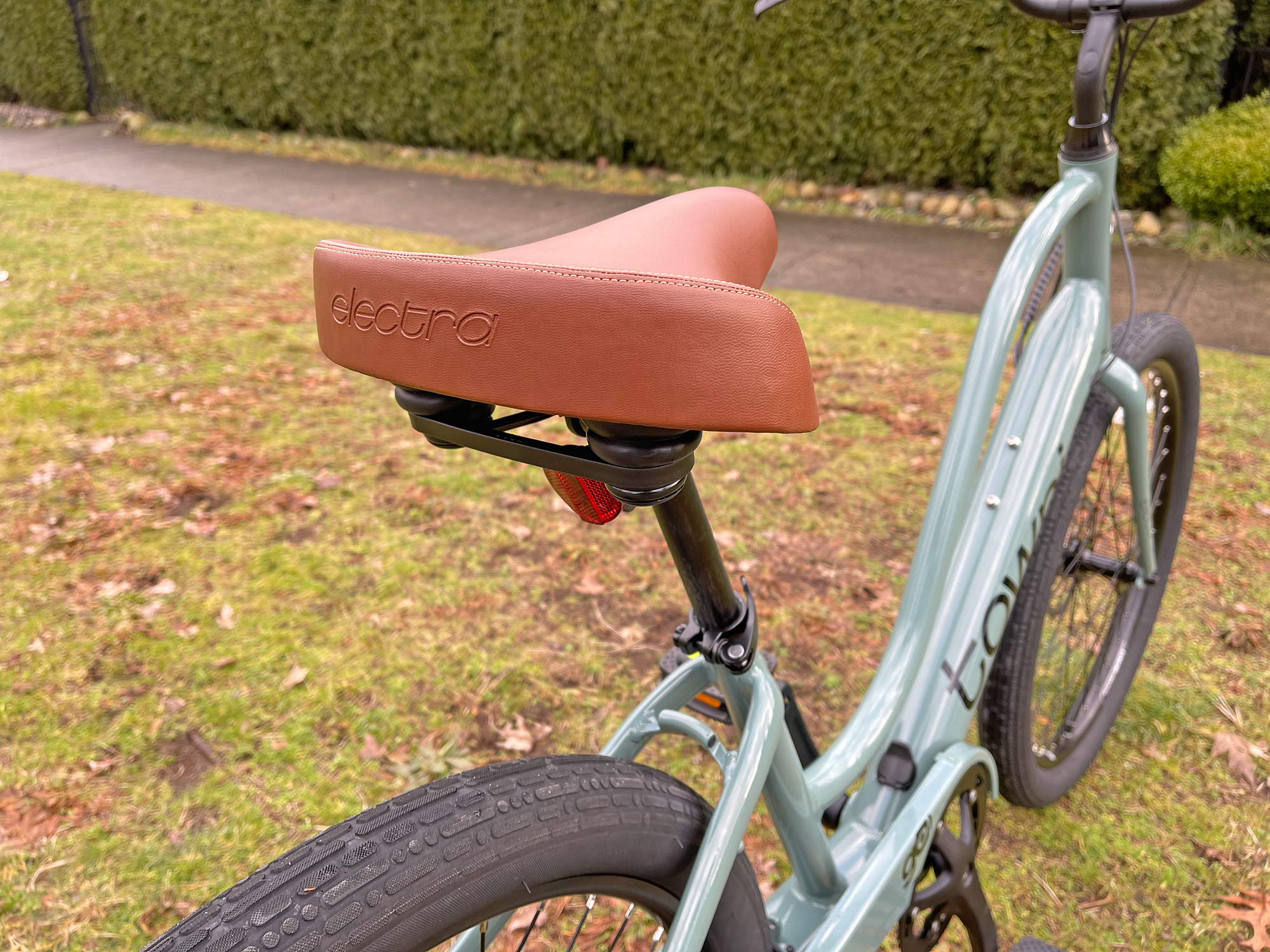
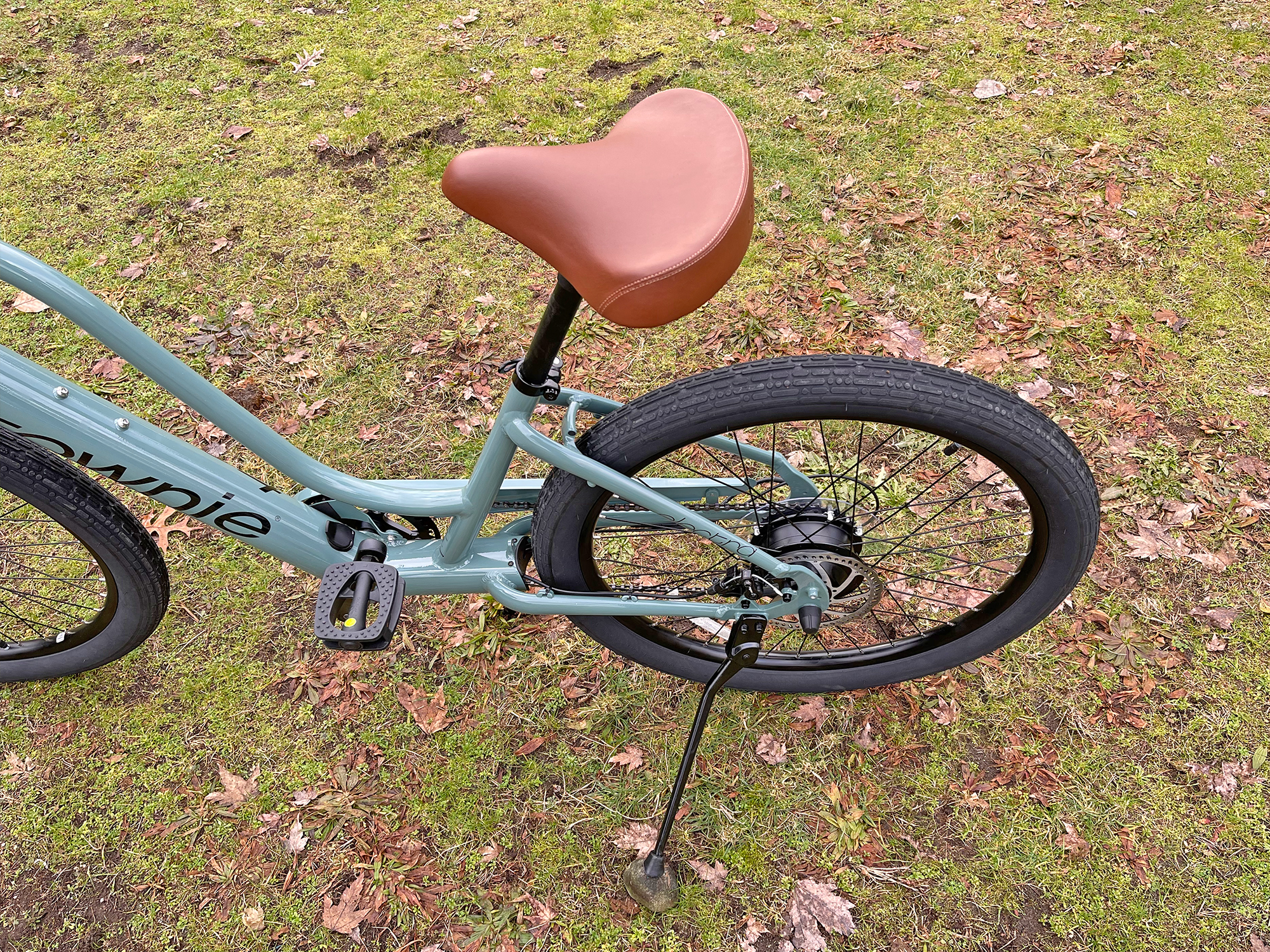

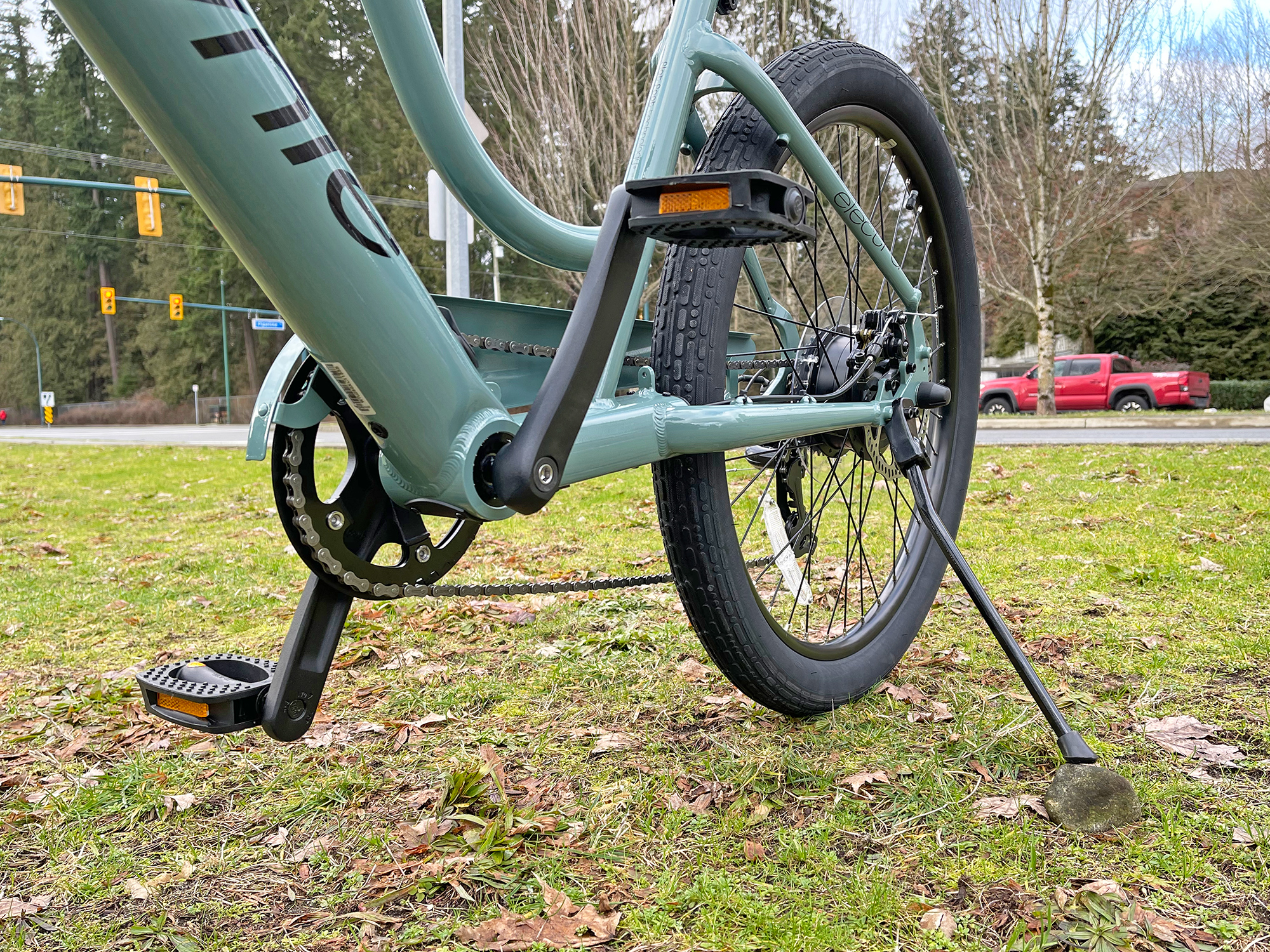
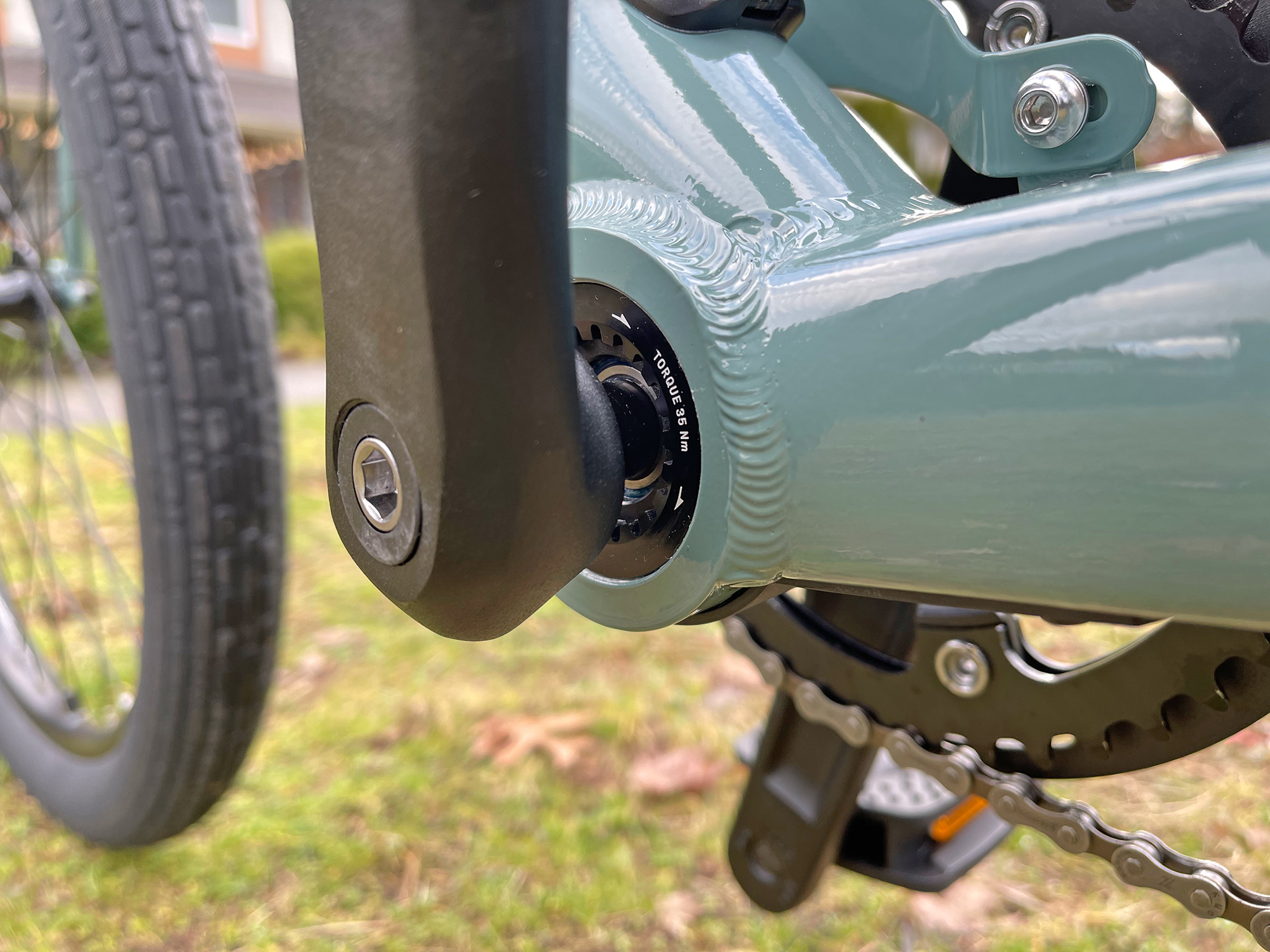


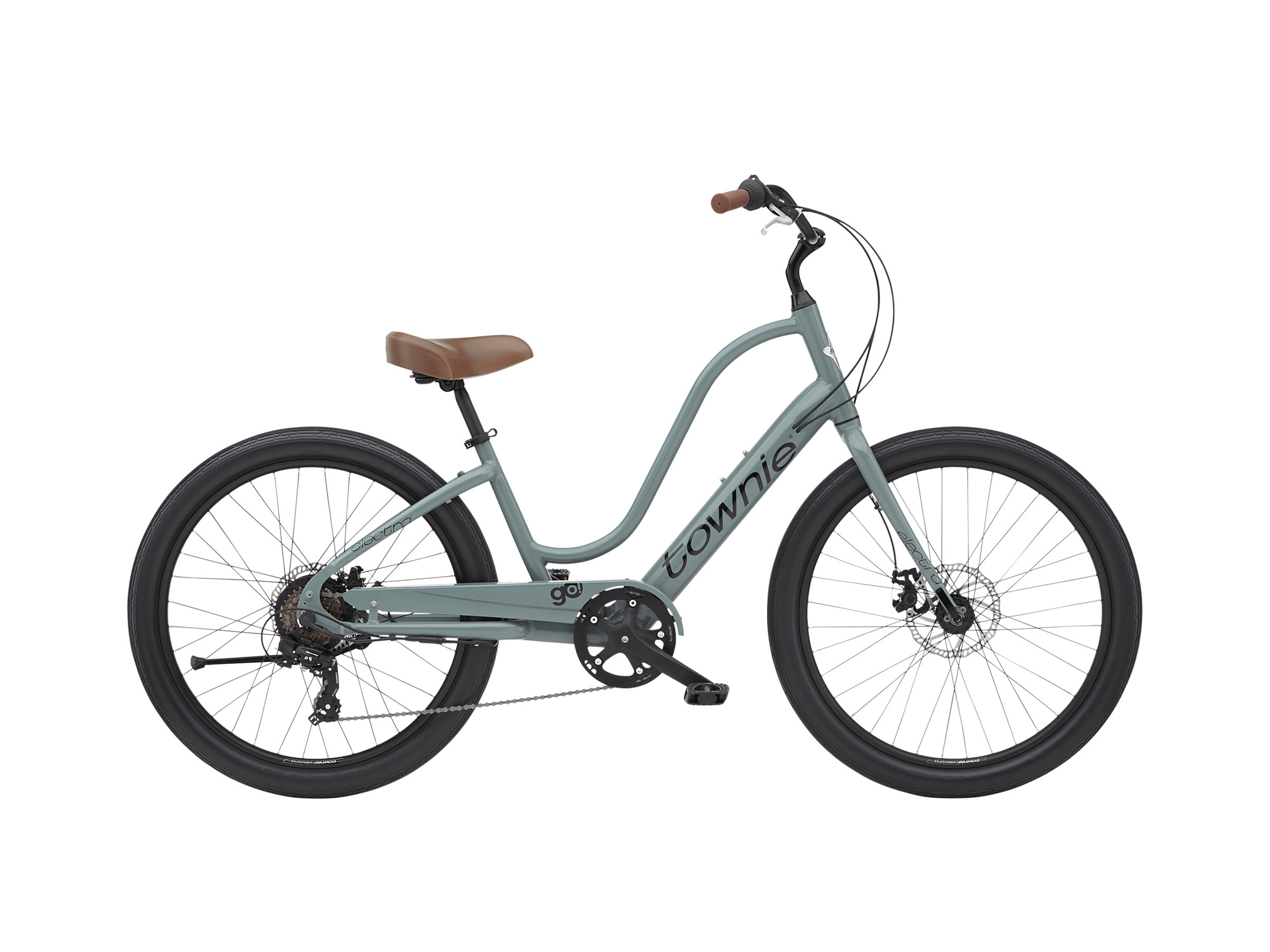
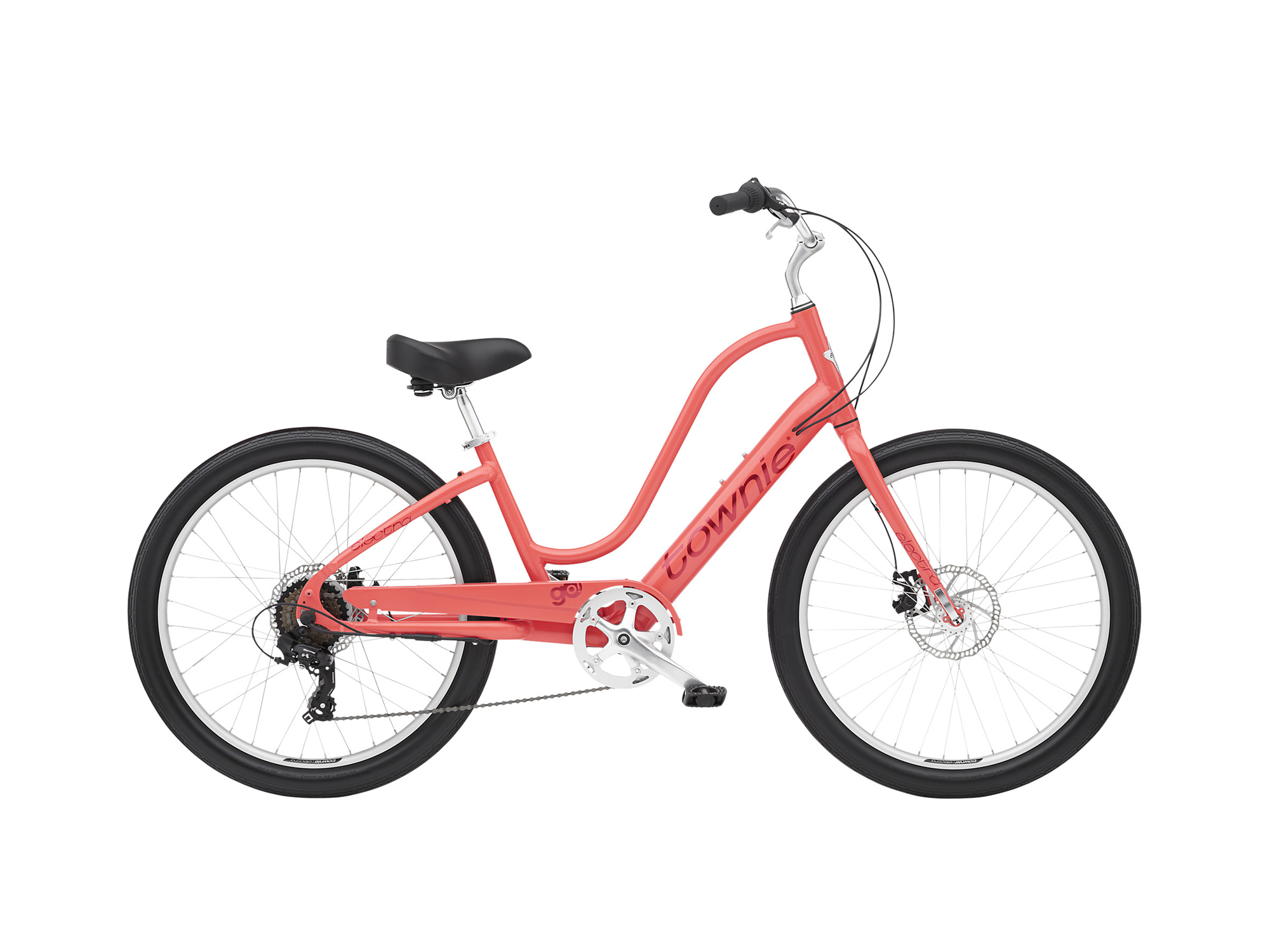
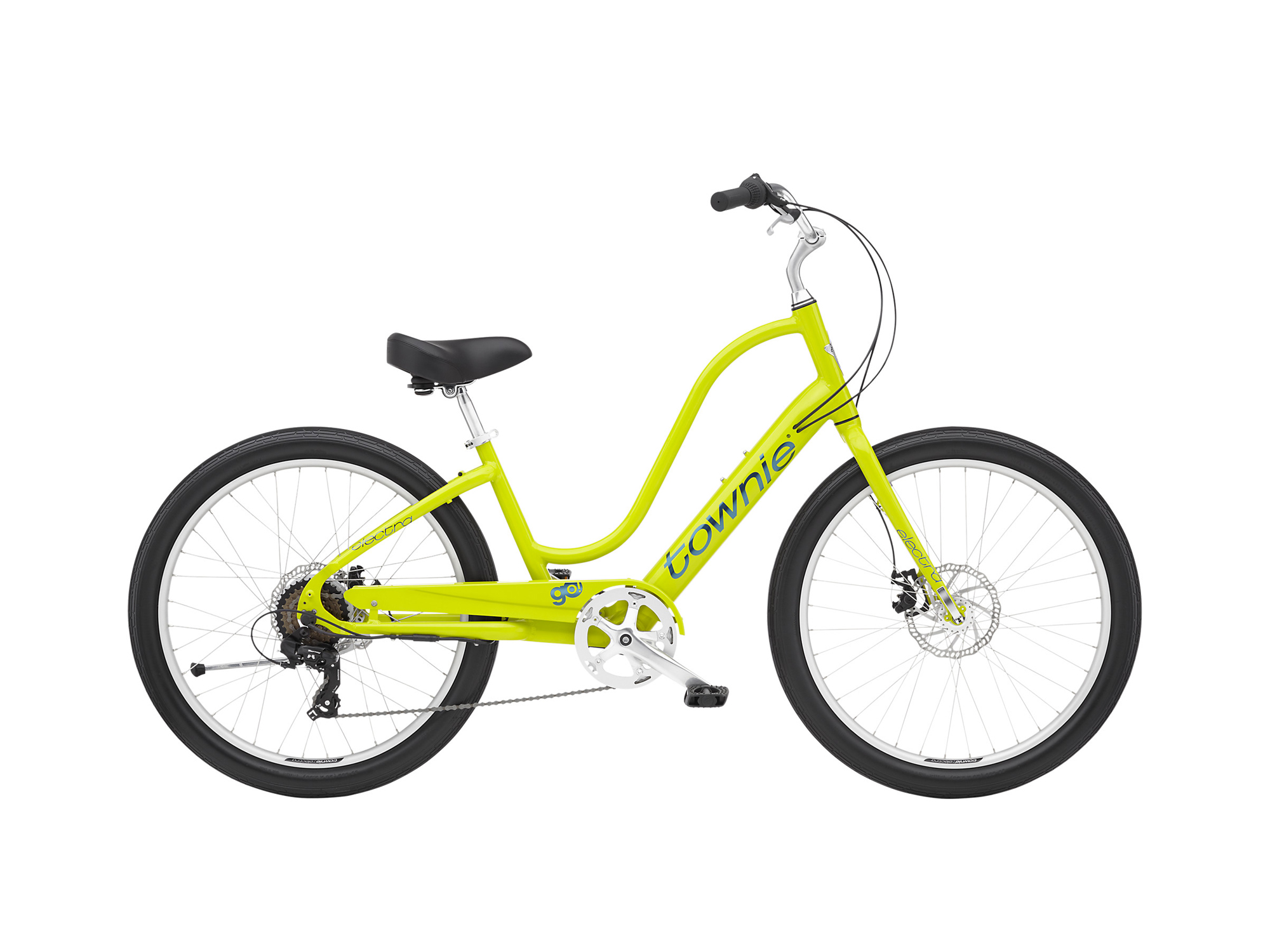


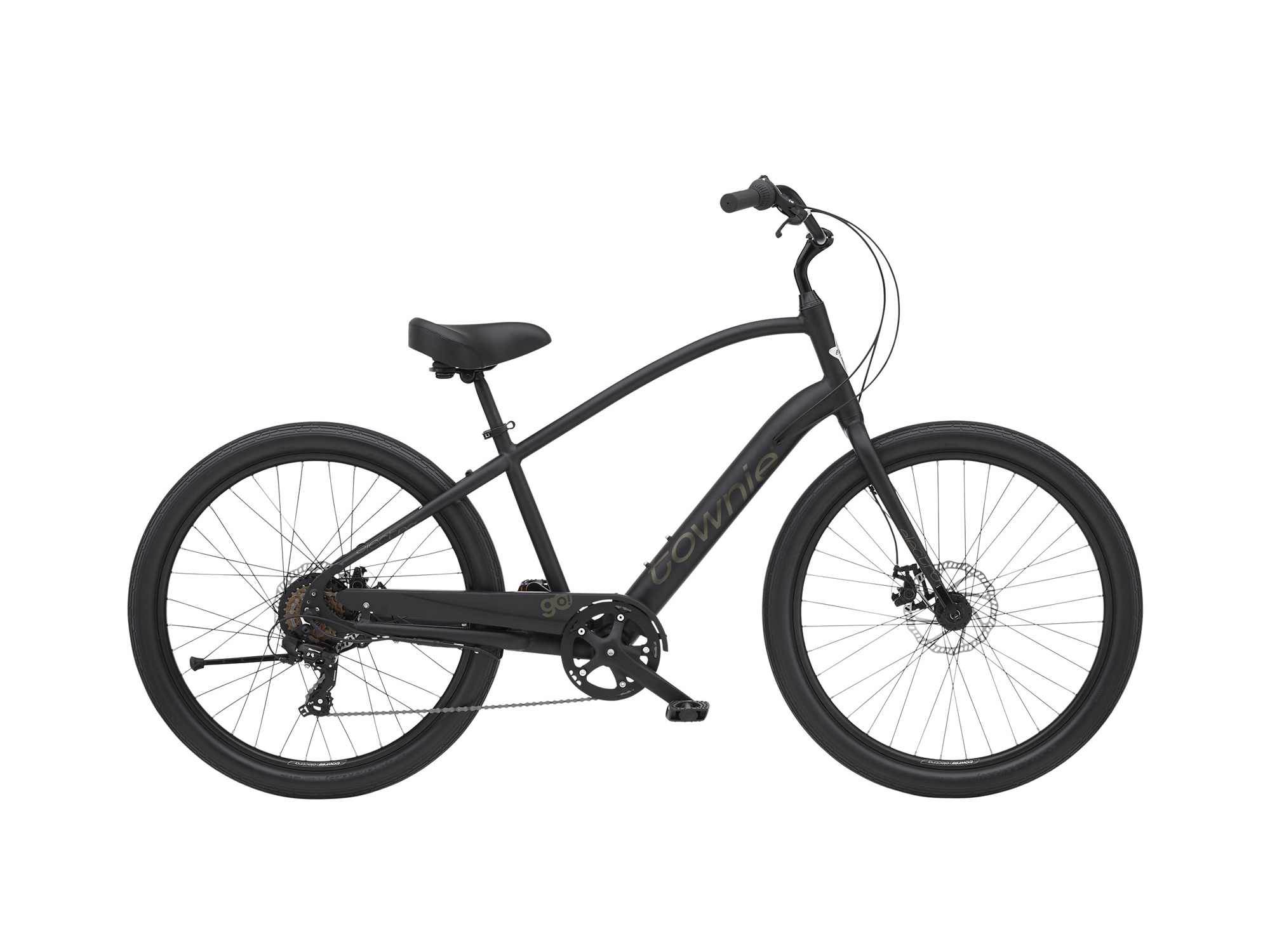
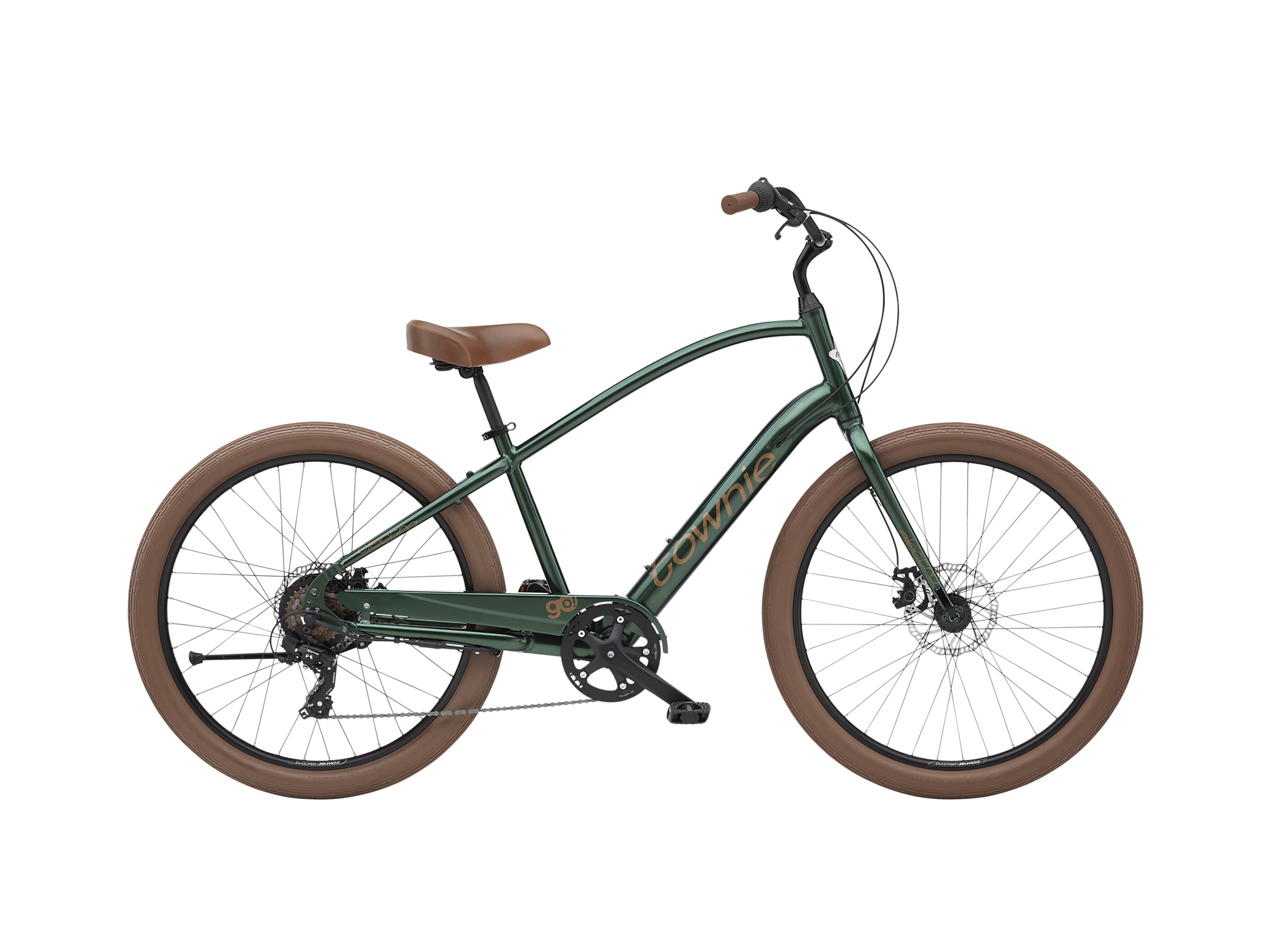



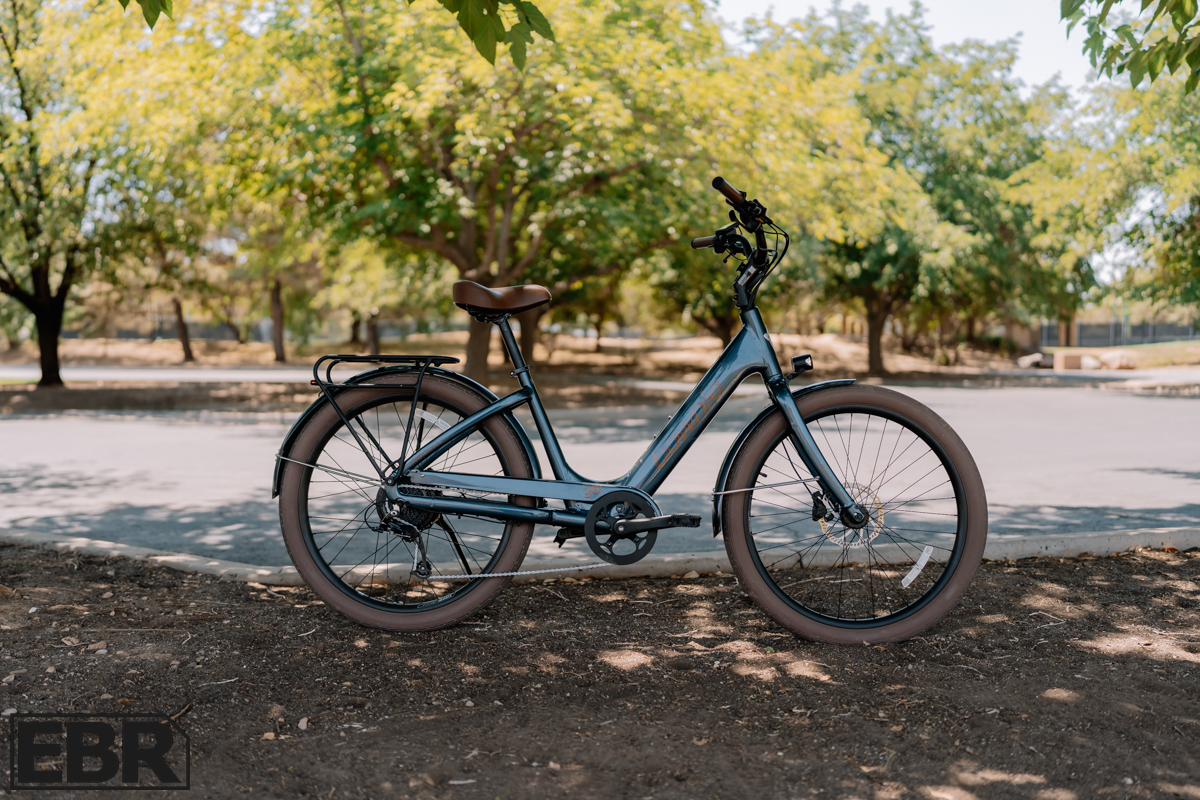
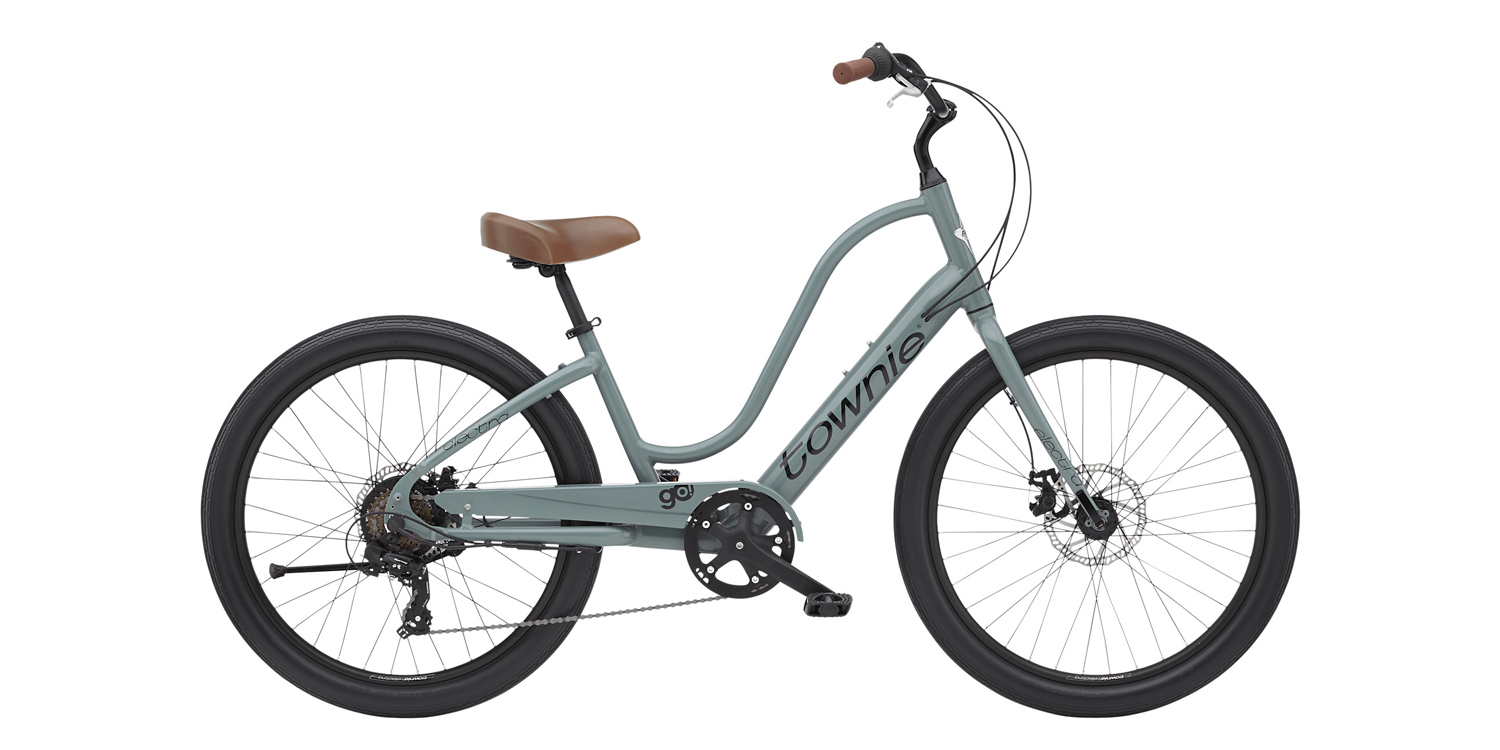
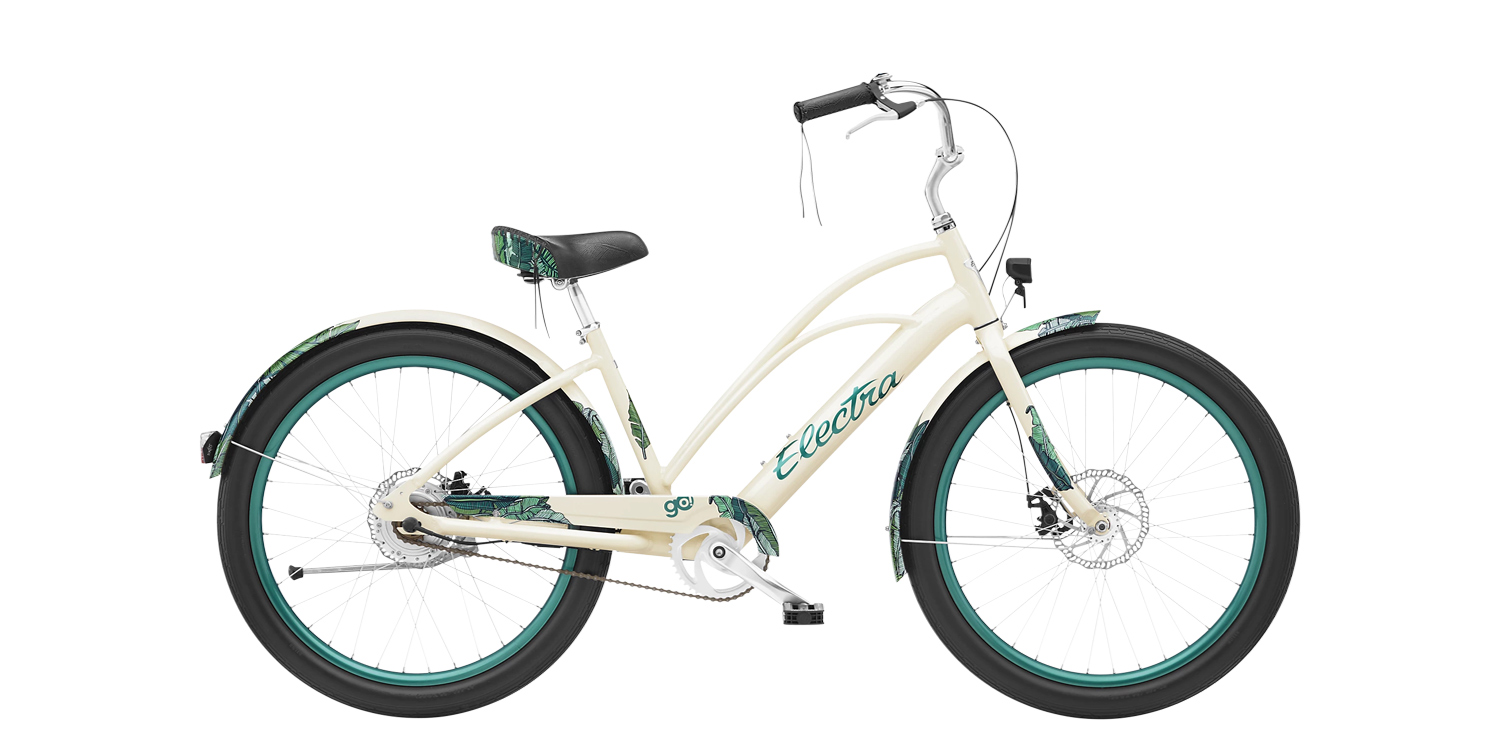
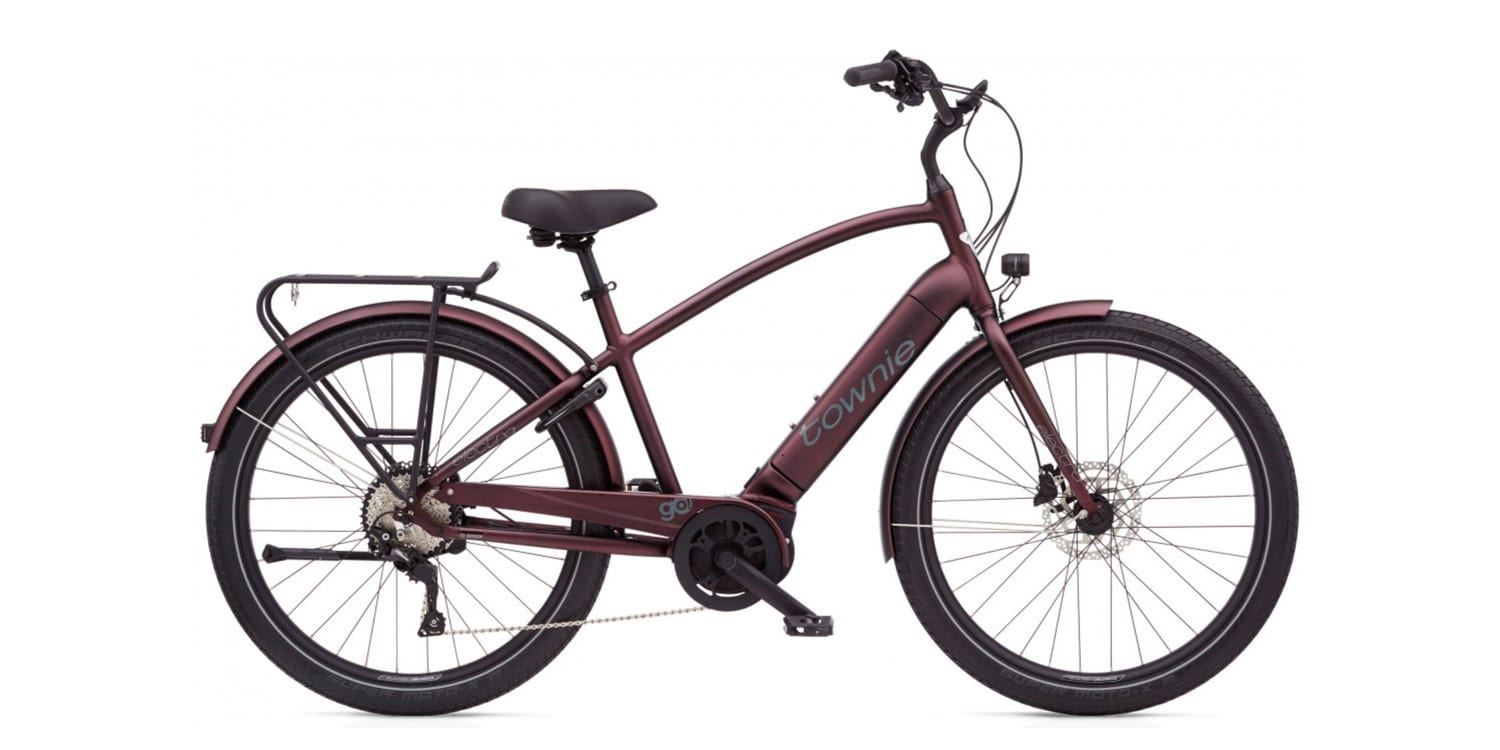
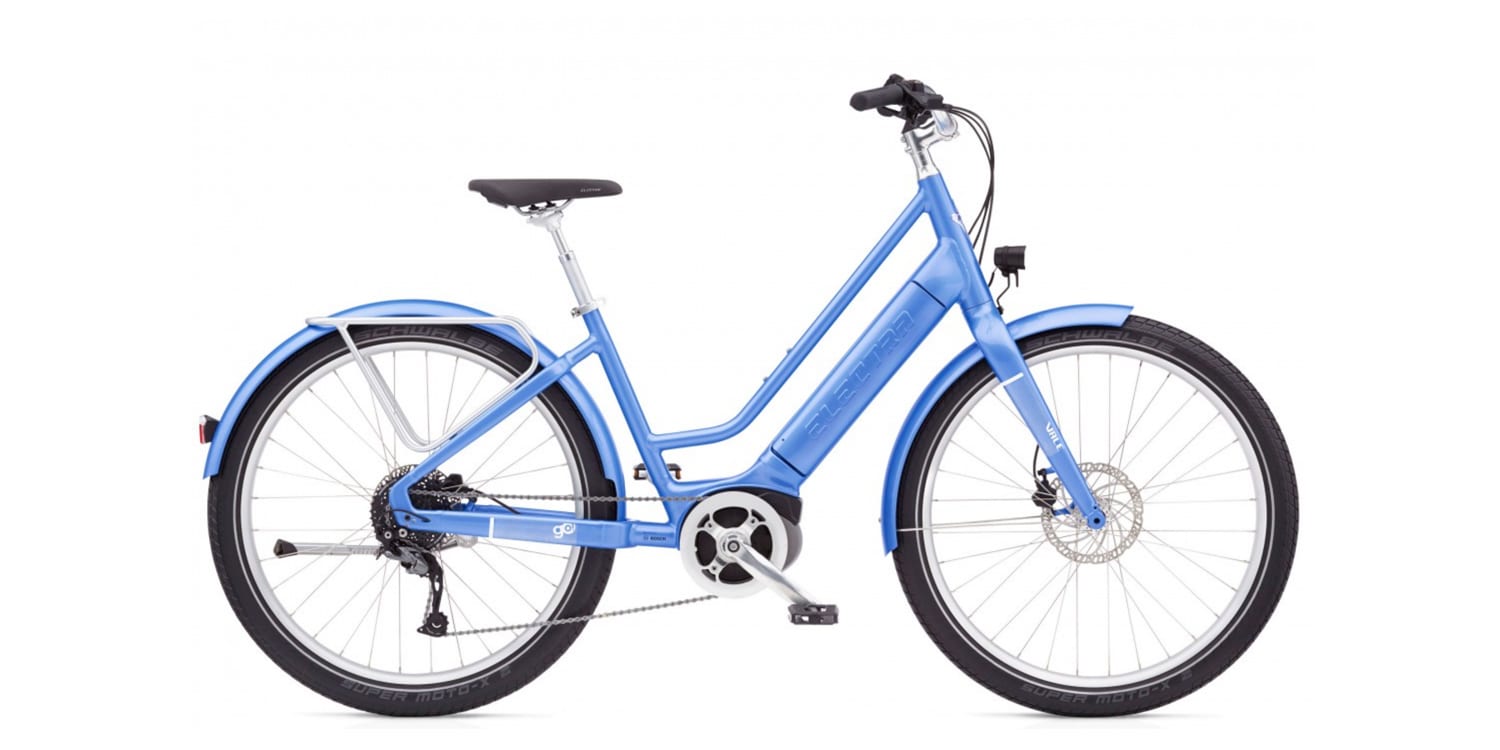
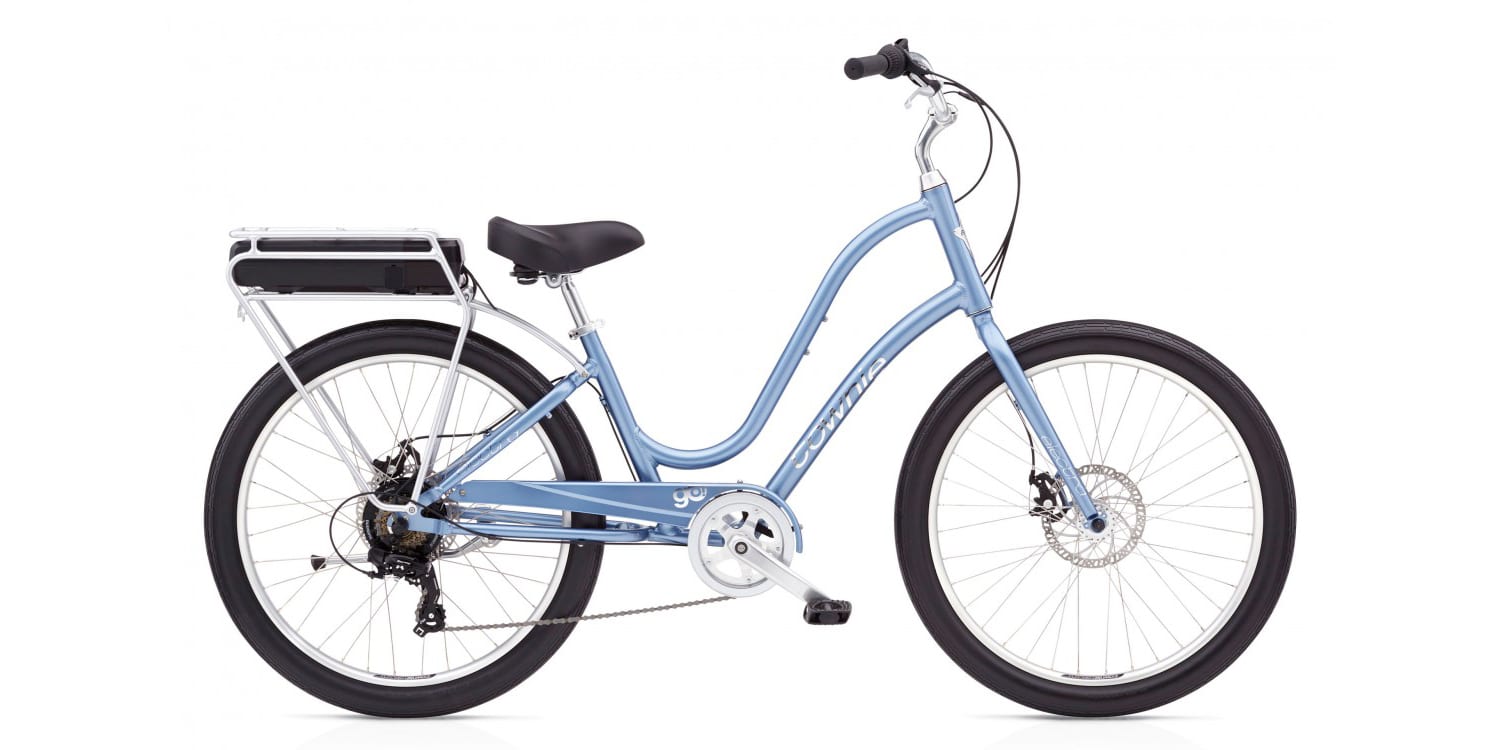
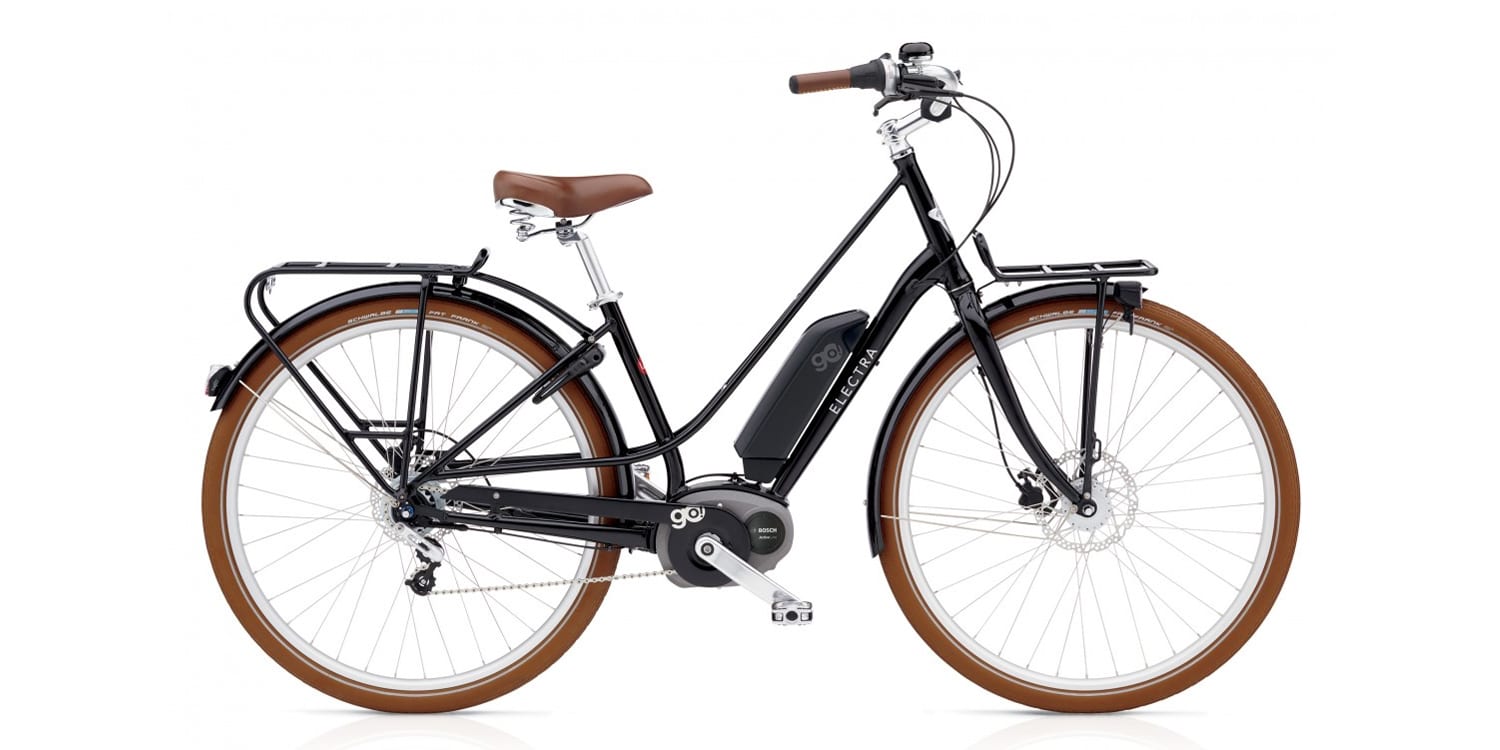
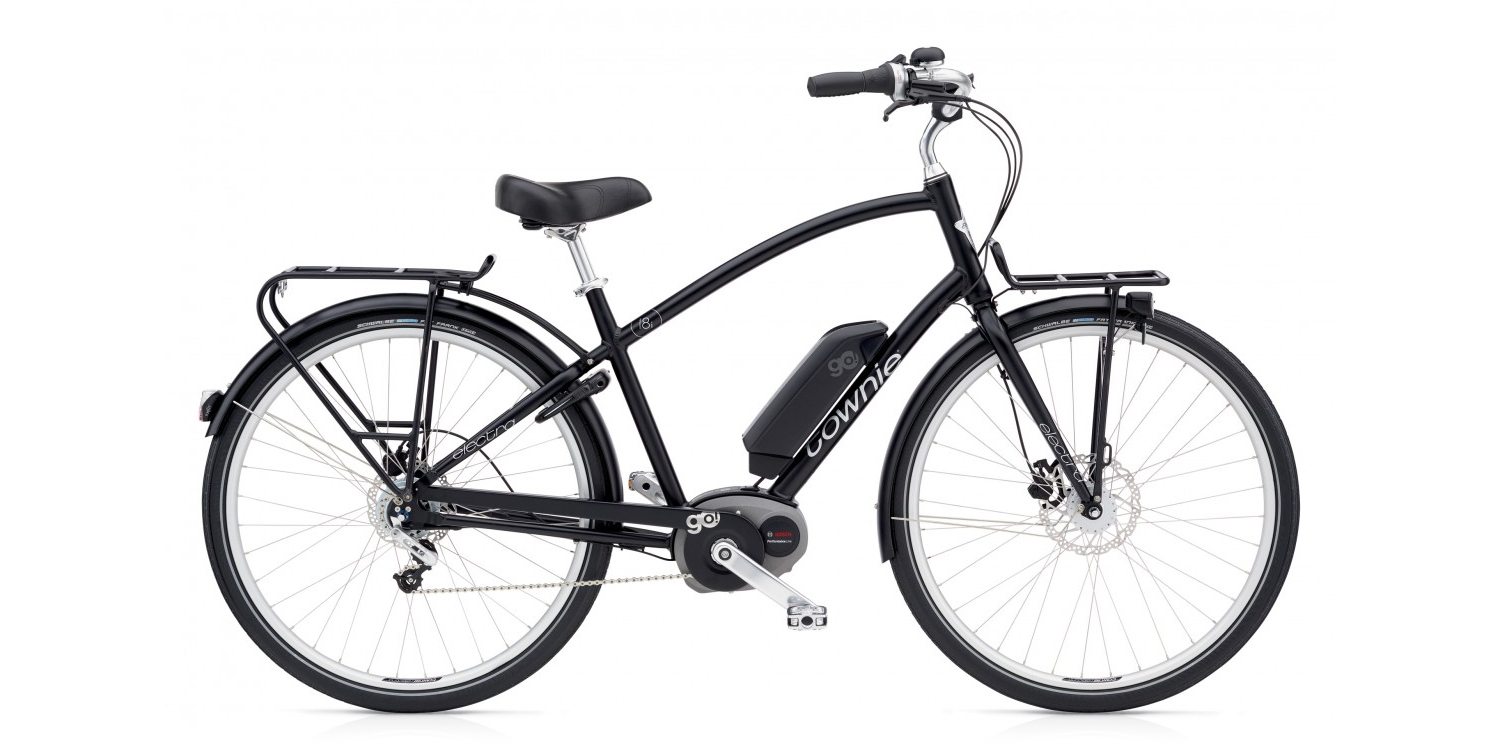
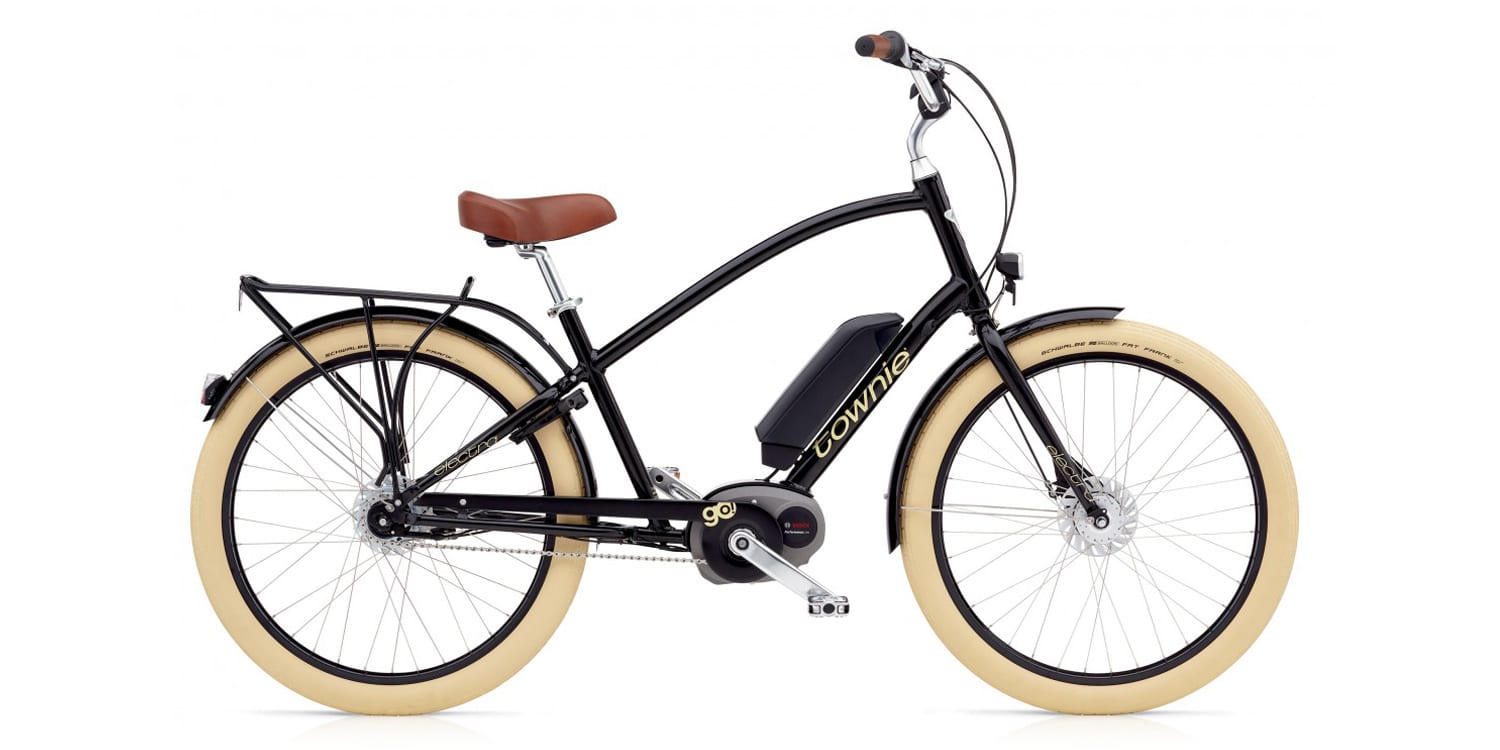
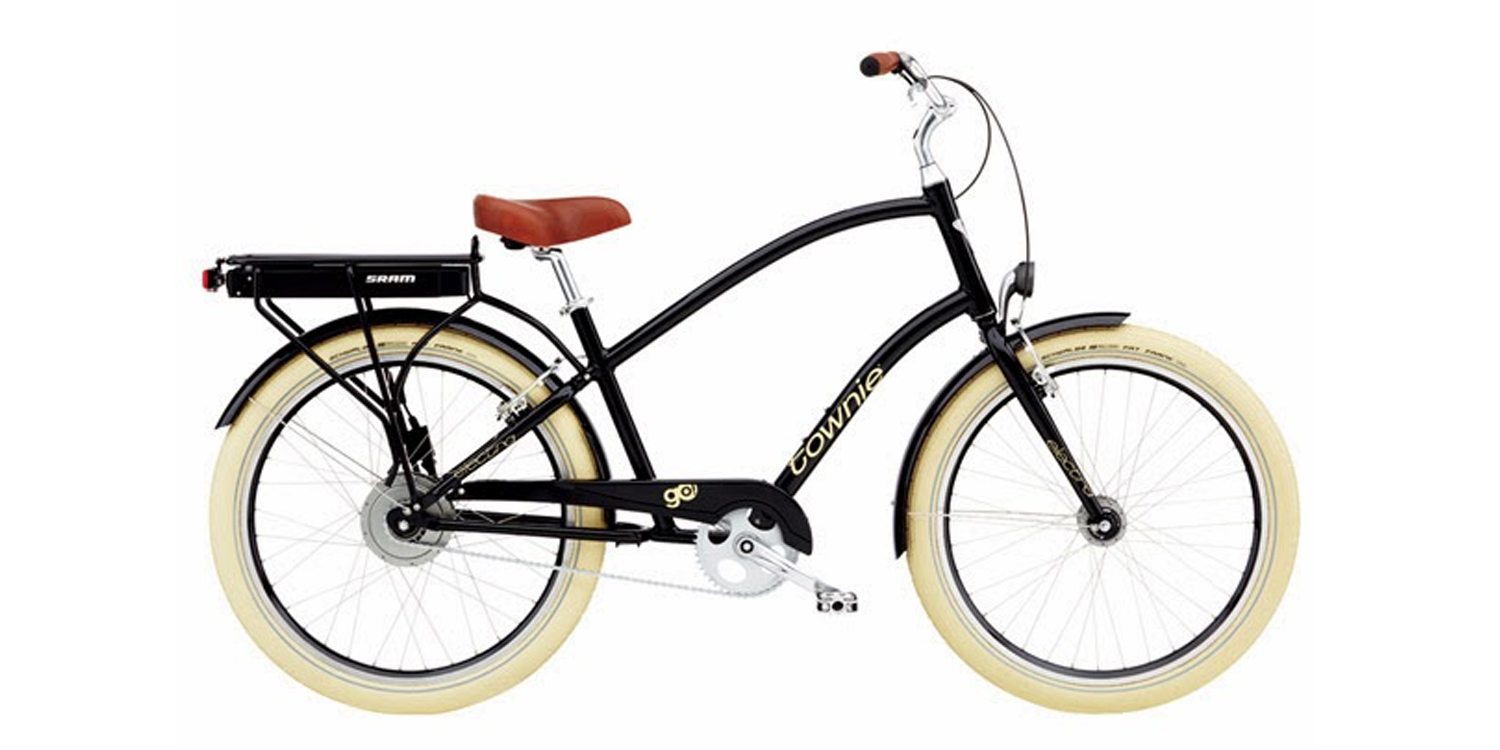

Tsippi says
Nice review. Thank you. Is Elektra the only company making crank-forward e-bikes? I’ve been riding Townie’s for almost 20 years (I love both of mine) and feel so much safer with my feet close to the ground while riding (and stopping.)
Court says
Hi Tsippi! I think they are one of the leaders for sure. Other ebikes that have relaxed cruisers with a steeper seat tube angle or feet-forward pedals include the Electric Bike Company, Blix, Pedego, EVELO, Magnum, and E-LUX. I hope this helps :D
Kbana says
Great review. Maybe I missed it. I didn’t see a Pro for the torque sensor. I really like the functionality to adjust torque with the app.
It’s been a year and still no fenders available for the cruiser step over 27.5”.
Court says
Good call! Sometimes there are so many pros that I overlook or miss adding one, thanks for adding it with your comment! I replied about fenders and accessories to your other comment, but here’s a page with lots of options from Trek (which owns Bontrager and Electra) maybe you could contact a store and ask which finders fit or match your wheel size of 26″. Here’s their accessories page.
Kbana says
Great review! You hit all the points. I love my Cruiser 7d step over. The only issue, still no available fenders. Anyone have any luck?
Court says
Hi Kbana! I’m glad you’re enjoying the bike, and I wish that I could recommend a specific fender that would work. Perhaps the Trek or Electra dealer would have some suggestions for you. I believe that Trek owns Electra and Bontrager (which makes bicycle hardware). They seem to have many choices, and perhaps they would know which ones work best.
Susan Ray says
I am on my second Electra e bike GO because the power assist does not work all the time. When biking, I turn on the power assist level 1 and nothing happens. Turn off and turn back on and put on level 1 and nothing happens. Sometimes it takes 3-4 times of turning off and turning on before the power assist kicks in. Again, this is my second bike in 9 months because Electra after trying to troubleshoot could not figure it out. Very frustrating. I love the bike but never sure if the power assist is going to work. Any suggestions would be appreciated. Electra did exchange the bikes at no charge.
Court says
Hi Susan! That sounds frustrating… It’s nice that Electra is supporting you by trading the bike. I don’t have any tips, but maybe other owners have had similar experiences. Thanks for commenting and staying positive, I hope the new one works better.
Susan Ray says
This is my second bike and still having the same issue. We have two common denominators here which are me, and, the bike shop where the two bikes were purchased and put together.
Court says
Hmm, that’s very unfortunate… I was hoping it was just the first one and now you’d be on your way to worry-free riding. I wonder if the cables are all firmly connected? Sometimes if they get pulled a bit during assembly, transport, or twisting the handlebar far in one direction they can get loose. Also, the magnet that connects to the spoke on the rear wheel can sometimes get bumped or dirty and not be read as clearly when it passes by the sensor. I hope these ideas help…
Ok says
Hi there Susan, I too have a townie go7 step over with the hyena drive. I had the same problem; pressing the “+” button to increase assist and while the display showed increased no assist was felt.
I connected the hyena app to my bike and found that it need a firmware update. After using the app to update the firmware I found that is started to work. I tried the same with my wife’s step thru (we got a pair of his and hers) and it too solved the problem. I hope this helps you Susan.
Good Luck.
Daniel says
Bonjour, J’aime beaucoup le vélo pour la considération qu’il est un aide au pédalage qui doit se poursuivre durant toute la randonnée. J’ai parcouru 23km avec un vent de front sans résistance. Excellent test.
Désavantage majeur: la pression des pneus à 65lbs doit être reconsidérée ou même la sorte de pneus. On ressent chacune des petites fissures de la chaussée. Chez nous, la piste cyclable est parsemée de ces fissures et plus. Pour les passages à niveau c’est l’enfer. On doit se lever de la selle et le vélo en prend pour son rhume. Ce vélo, je crois est de conception Californienne, donc pour faire de la randonnée sur des plages de sables compactées? Il est fort probable que le vélo soit mieux adapté pour les conditions des pistes cyclables de cet état que pour nos pistes affectées par les intempéries. Donc est-ce que vous suggérez de diminuer la pression des pneus? Si oui, que me suggérez-vous svp?
Court says
Bonjour! Oui, il est possible d’adoucir la conduite et d’améliorer le confort en abaissant la pression des pneus. La gamme PSI et BAR est généralement estampée sur le flanc des pneus. J’essaie d’enregistrer ces informations lorsque je crée des avis, et la mesure pour le Townie Go ! 7D était de 22 à 60 PSI, 1,5 à 4,0 BAR.